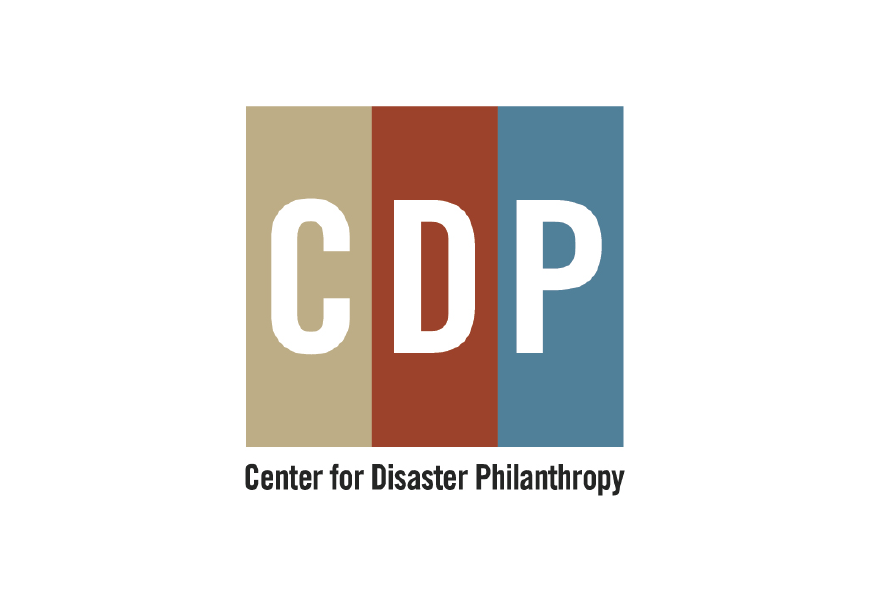Vibrant Disaster Behavioral Health Symposium
The Power of Community and Connection in Disaster Behavioral Health
We are excited to announce our robust program for Vibrant’s 2023 Symposium.
Use the search and filter bar below to find panels related by topic, type (roundtable, presentation, etc.), presenter, and more. Click on the times to see the panels and click inside the box for each panel to read more about it and select the star icon on panels you’re most excited for to filter for just those.
Panels marked with an asterisk (*) will be streamed online over Zoom.
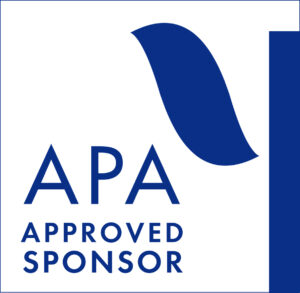 We are proud to announce we are providing CEs on certain panels (marked with a °) through The Ross Center. The Ross Center is approved by the American Psychological Association to sponsor continuing education for psychologists. The Ross Center maintains responsibility for this program and its content.
We are proud to announce we are providing CEs on certain panels (marked with a °) through The Ross Center. The Ross Center is approved by the American Psychological Association to sponsor continuing education for psychologists. The Ross Center maintains responsibility for this program and its content.
The Ross Center for Anxiety and Related Disorders LLC is recognized by the New York State Education Department’s State Board for Psychology as an approved provider of continuing education for licensed psychologists #PSY-0105. Ross Management Services, LLC is recognized by the New York State Education Department’s State Board for Social Work as an approved provider of continuing education for licensed social workers #SW-0701
Schedule subject to change.
- Wednesday 24 May 2023
- Thursday 25 May 2023
- Friday 26 May 2023
Wednesday 24 May 2023
4:00 pm - 6:00 pm Registration Check-In
Registration Check-In Day One
Check-In for attendees and exhibitors begins in the Constitution Hall entryway on Wednesday, May 24th at 4:00PM ET.
6:00 pm - 8:00 pm Welcome Reception
Welcome Reception
Lisa Furst, Amy Carol Dominguez, April NaturaleConstitution Hall Rooms 1-3
Join us Wednesday evening 6PM to 8PM for a welcome dinner! Use this opportunity to settle in, look at the exhibit tables, meet your fellow conference guests, and hear from our wonderful opening speakers.
Opening Keynote, 6:15PM
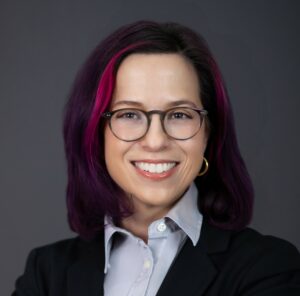
Lisa Furst, LMSW, MPH
- Pronouns: she/her/hers
- Title: Chief Program Officer
- Bio: Lisa Furst, LMSW, MPH has more than 20 years of experience in the mental health service sector. In her current role, Ms. Furst provides direction and support to Vibrant’s community programs, the H2H Contact Center and the Center for Policy, Advocacy and Education. Her expertise includes program development and implementation, training and technical assistance, quality improvement, fundraising and advocacy. She is an author of and contributor to several books on mental health, with particular expertise on older adult mental health. She also has published articles in Behavioral Health News, Geriatric Medicine, the Journal of Care Management, and other publications, as well as interviewed by national news outlets, such as The New York Times and CNN. Ms. Furst holds a master of social work degree from the Hunter College School of Social Work and a masters of public health degree from the CUNY School of Public Health & Health Policy.
Welcome from the Crisis Emotional Care Team, 6:45PM

Amy Carol Dominguez, MPA
- Pronouns: she/her/hers
- Title: Program Director of the CECT
- Bio: Amy Carol Dominguez serves as the Program Director for the Crisis Emotional Care Team at Vibrant. She has been working in Disaster Mental Health since 2007. Amy’s international development career has taken her around the world to countries like Ethiopia, Liberia, Colombia, Argentina, Canada, and Mexico and she has coordinated international disaster mental health responses in Haiti, Nepal, Puerto Rico, and across the United States. She is a writer and speaker, focusing on best practices in volunteer engagement and leadership. Amy is actively involved in strategic program development for youth in Latin American countries and leads the Board of Directors for the Hands Offering Hope Foundation. She holds her Masters in Public Affairs from Indiana University and splits her time between Mexico and Connecticut with her husband, Adiel, and daughters Sofia and Lucia.
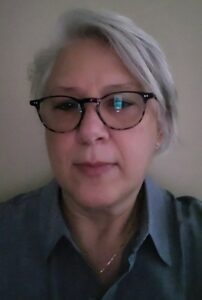
April Naturale, PhD
- Pronouns: she/her/hers
- Title: Assistant Vice President of National Programs
- Bio: April Naturale, PhD, is a traumatic stress specialist with 30 years of experience as a health/mental health care administrator, and a clinician specializing in response to traumatic events. Dr. Naturale directed the New York State mental health response to 9/11, served as project director for the Substance Abuse and Mental Health Services Administration’s Disaster Technical Assistance Center (SAMHSA DTAC), helped launch the National Suicide Prevention Lifeline, the BP Oil Spill Distress Helpline and the National Disaster Distress Helpline. She was the architect of the Boston Marathon Bombing Behavioral Health response has been the program consultant for the San Bernardino terror attack and the TN Christmas Day bombing as well as the Las Vegas Harvest Festival, Pulse Nightclub, Parkland, Thousand Oaks, Pittsburgh Tree of Life, Virginia Beach, El Paso and Highland Ranch shooting incidents. For the past five years she has trained Psychologists in the Ukraine Military Service, Humanitarian Aid workers for the European Union and recently helped launch the new European Centre of Expertise for Victims of Terrorism. Dr. Naturale has returned to Vibrant Emotional Health as the AVP of National Crisis and Wellness Services.
Thursday 25 May 2023
7:30 am - 9:00 am Breakfast
Breakfast at the University Dining Hall
Visit Dining & Retail on Campus for more information on the Mary Graydon Center's Terrace Dining Hall, where meals are comped for all registered guests.
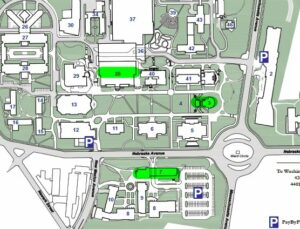
8:00 am - 6:00 pm Registration Check-In
Registration Check-In Day Two
Attendee and exhibitor registration check-in begins in Constitution Hall's entryway.
8:30 am - 9:30 am Keynote
*Day Two Keynotes
April Naturale, Marcus Coleman, Jr., and Olivia SteinConstitution Hall Rooms 1-3
We are proud to have the following keynotes opening the second day of Vibrant's Disaster Behavioral Health 2023 Symposium.
Opener

April Naturale, PhD
- Pronouns: she/her/hers
- Title: AVP for Crisis and Wellness Programs at Vibrant Emotional Health
- Bio: Dr. Naturale is a traumatic stress specialist focused on response to disasters and mass violence. She has provided disaster and traumatic stress response training and consultation throughout the U.S. having led the NY mental health response to 9/11/01, the Boston Marathon bombing and responding to 12 of the last mass violence shooting events. Dr. Naturale also helped launch the National Suicide Prevention Lifeline and the Disaster Distress Helpline. Internationally, she has trained Psychologists in the Ukraine Military Service, Humanitarian Aid workers for the European Union and helped launch the European Centre of Expertise for Victims of Terrorism. Currently, Dr. Naturale is Vibrant Emotional Health’s AVP for Crisis and Wellness at the 988 Suicide and Crisis Lifeline and was also recently appointed by the U.S. Attorney General’s team of subject matter experts to review the law enforcement response to the May 24, 2022, Uvalde, TX, Robb Elementary school shooting.
Keynotes
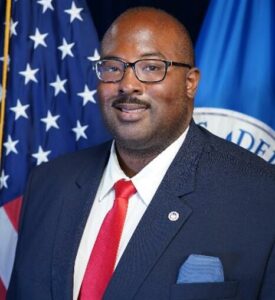
Marcus Coleman, Jr.
- Pronouns: he/him/his
- Title: Director of the Department of Homeland Security Center for Faith-Based and Neighborhood Partnerships, a Center of the White House Office of Faith-Based & Neighborhood Partnerships
- Bio: Marcus Coleman serves as the Director for the Department of Homeland Security Center for Faith-Based and Neighborhood Partnerships (DHS Partnerships Center), one of several centers of the White House Office of Faith-Based & Neighborhood Partnerships. Originally from Tucson, Arizona, Marcus’ has served at the intersection of building public private partnerships with faith-based and non-profit organizations for more than 15 years. As the Director of the DHS Partnerships Center, Marcus leads a team focused on building partnerships alongside others at FEMA and DHS to advance equity in emergency management and strengthen climate resilience, improving the safety and security of the places where people worship, fellowship and serve and provides technical assistance to emergency managers, first responders and national security professionals on engaging faith-based and community organizations across DHS. The office is also an active partner of the DHS Blue Campaign, an effort designed to educate the public, law enforcement and other partners to recognize the indicators of human trafficking, and how to appropriately respond to possible cases.
- DHS Center for Faith-Based and Neighborhood Partnerships
- Follow FEMA on...
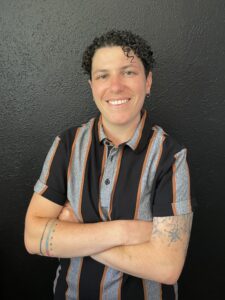
Olivia Stein
- Pronouns: they/them/theirs
- Title: Director of Videophone Crisis Line Services at DeafLEAD
- Bio: Olivia Stein, MSW, is the Director of Videophone Crisis Line Services at DeafLEAD, Columbia, Missouri. They manage two videophone hotlines, with one of them being the Disaster Distress Helpline - Videophone (DDH VP). They are a life-long Deaf individual who appreciates and values ongoing direct communication, collaboration, and connection for the diverse, inclusive Deaf and Hard of Hearing (D/HH) community. Their main goals are to be a continuous advocate in reducing systemic barriers, and ensuring resources are made accessible and provided for the D/HH, especially resources that focuses on mental health and disaster crisis care. Olivia currently finds themselves settling along the Front Range of Colorado. Olivia is the third generation of their family who is Deaf and communicates using American Sign Language. When they are not at work, you can often find them enjoying the outdoors, and spending quality time with their family.
- DeafLEAD website
- DeafLEAD Facebook
- DeafLEAD Instagram
- Disaster Distress Helpline Videophone Website
10:00 am - 11:00 am Plenary One
*°Plenary: Chronic Cyclical Disaster Model
Grant Brenner, Sander Koyfman, April Naturale, Kathleen Clegg, Curt WestConstitution Hall Rooms 1-3
About: Over the last few decades, the world has seen a stark increase in human-caused and natural disasters, resulting in many areas experiencing multiple disasters at a time. These overlapping disasters impede a community’s ability to recover physically or mentally from one disaster before another one hits, lowering people’s resilience and posttraumatic growth possibilities. This is especially true for high risk communities, such as Black, Indigenous, and Communities of Color, communities with disability, and other marginalized peoples.
Traditional disaster models were created with single disasters in mind, where recovery and growth were obtainable before another disaster hit. While useful, the increase in disasters, plus the extra stressors marginalized communities experience, necessitated a new chronic disaster model.
This Chronic Cyclical Disaster Model is the collaborative effort of multiple agencies and people in psychiatry, public health, and disaster recovery. This entry-level training takes participants through the blueprint and explains how it can be applied by behavioral health professionals, community leaders, first responders, and survivors to better understand their unique behavioral and emotional responses. Specific examples provide the differences between the traditional models of disaster and this new proposal. The speakers run participants through several scenarios to help them understand how to practically apply the blueprint in various communities. Participants leave the session with an understanding of how cyclical disasters and underlying stressors affect behavioral, emotional, psychological, and spiritual well-being, and how to apply this model when responding to disasters.
Learning Objectives
- After attending this workshop, attendees will be able to describe the four phases of disaster response.
- After attending this workshop, attendees will be able to identify at least one way to have their community achieve adaptive stress regulation.
- After attending this workshop, attendees will be able to develop a behavioral health response plan when overlapping disasters occur within their communities.
Continuing Education
1 CE for psychologists (all) and social workers in VA, NY, and DC.
Audience level: Introductory
Agenda: https://app.box.com/s/mtof0id9aqsvabb24bt7esgc1fq5142v
Host

Amy Carol Dominguez
- Pronouns: she/her/hers
- Title: Program Director, Crisis Emotional Care Team
Panelists
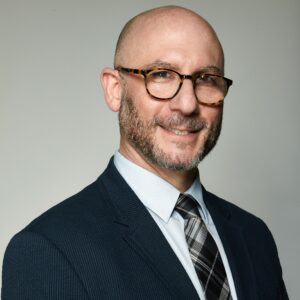
Grant Brenner
- Pronouns: he/him/his
- Title: Chief Medical Officer
- Bio: Grant Hilary is board-certified, and a Fellow of both the American Psychiatric Association and the New York Academy of Medicine. He is on faculty at the Mount Sinai Beth Israel Hospital, former Director of Trauma Service at the William Alanson White Institute and Co-Chair of Vibrant Emotional Health's Crisis and Emotional Care Team Advisory Board, Co-Chair of the Disasters, Trauma and Global Health Committee of the Group for Advancement of Psychiatry, and CEO and Co-Founder of Neighborhood Psychiatry. With Dr. Fara White, Dr. Brenner co-hosts the Doorknob Comments podcast. He is an experienced consultant, lecturer and teacher on subjects including resilience and self-care, psychotherapy theory and practice, trauma and neurobiology, organizational dynamics and disaster mental health. Dr. Brenner has appeared regularly in national media spots addressing a variety of subjects. He is sole author of the popular Psychology Today blog entitled ExperiMentations.
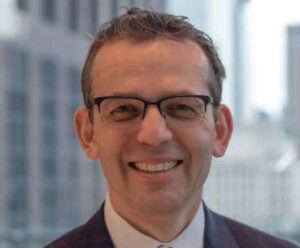
Sander Koyfman
- Pronouns: he/him/his
- Title: Chief Medical Officer
- Bio: Dr. Sander Koyfman is a Psychiatrist with dual Board Certification in General Adult Psychiatry and Addiction Medicine. He is the Chief Medical Officer of Athena Psych - a NYC based clinic startup with focus on government programs, an independent consultant and most recently has served as Clinical Programs Behavioral Health Medical Director at Centene Behavioral Health with specific interest in measurable improvement in quality of care, Value Based Purchasing arrangements and promotion of Integration as a way to address parity and access to care. Prior to Centene he has served in a variety of clinical roles building and restoring services in a number of community settings. He graduated from New York University and completed his medical degree at the State University of New York Downstate Medical Center College of Medicine. He is a graduate of Mount Sinai Hospital Adult Psychiatry Program in New York City.

April Naturale
- Pronouns: she/her/hers
- Title: Assistant Vice President of National Programs
- Bio: Dr. Naturale is a traumatic stress specialist focused on response to disasters and mass violence. She has provided disaster and traumatic stress response training and consultation throughout the U.S. having led the NY mental health response to 9/11/01, the Boston Marathon bombing and responding to 12 of the last mass violence shooting events. Dr. Naturale also helped launch the National Suicide Prevention Lifeline and the Disaster Distress Helpline. Internationally, she has trained Psychologists in the Ukraine Military Service, Humanitarian Aid workers for the European Union and helped launch the European Centre of Expertise for Victims of Terrorism. Currently, Dr. Naturale is Vibrant Emotional Health’s AVP for Crisis and Wellness at the 988 Suicide and Crisis Lifeline and was also recently appointed by the U.S. Attorney General’s team of subject matter experts to review the law enforcement response to the May 24, 2022, Uvalde, TX, Robb Elementary school shooting.
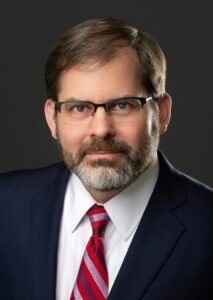
Curt West
- Pronouns: he/him/his
- Title: Associate Professor of Psychiatry
And special thanks to our other CCDM contributor, Kathleen Clegg, who cannot make the symposium but has been instrumental in its design.
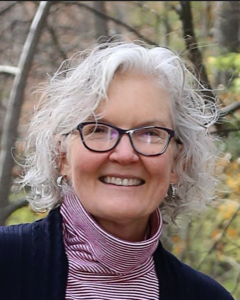
Dr. Clegg is an Associate Professor of Psychiatry and has been involved in clinical service, education and administration in psychiatry throughout her career. Board certified in Psychiatry and Addiction Psychiatry, Dr. Clegg serves as the Director of Ambulatory Psychiatry and Director of Community Psychiatry at University Hospitals Cleveland Medical Center. For more than 20 years, she has taught in the course “Management of Complex Humanitarian Emergencies: Focus on Children and Families” nationally and internationally. Dr. Clegg serves as Co-Chair of the Trauma, Disaster and Global Mental Health committee of the Group for the Advancement of Psychiatry (GAP). Dr. Clegg also serves as the Co-Chair of the University Hospitals Cleveland Medical Center Trauma Initiative. Special interests include Community Psychiatry, Addiction Psychiatry, Trauma, Compassion Fatigue and Vicarious Trauma, Disaster Psychiatry and Global Mental Health. She is a faculty member at the Gestalt Institute of Cleveland, and has served as a co-chair and faculty member is several workshops and training programs.
There is no conflict of interest or commercial support between any presenter and Vibrant Emotional Health for this program.
11:00 am - 11:45 am Plenary Two
*Plenary: 2023 Updates from the national Disaster Distress Helpline: Resources for and Partnerships with Disaster Behavioral Health Providers
Christian Burgess, Lidija Hurni, & Olivia SteinConstitution Hall Rooms 1-3
About: Launched in 2012 as the only crisis hotline national in scope and dedicated to 24/7/365 support for disaster survivors and responders struggling with emotional distress or other mental health concerns related to natural or human-caused disaster, the Disaster Distress Helpline (DDH) is funded by the U.S. Substance Abuse and Mental Health Services Administration and administered by Vibrant Emotional Health. Vibrant also administers the 988 Suicide and Crisis Lifeline, of which the DDH is a sub-network. In April 2020, at the onset of the COVID pandemic, call volume to the DDH increased by 900% compared to the same time period a year prior. While volume has steadily decreased since this peak, it continues to trend over 100% higher compared to volume received prior to the pandemic. Compared to the first five years of operation (2012-2016), between 2017-2021 overall DDH call volume increased by over 400% and text volume by over 600%. The DDH has received over 60% of its total volume in the past three years (2020-2022) since launching in 2012, in the midst of increasing severity of natural disasters and incidents of mass violence. Key stakeholders in disaster behavioral health are vital partners to the DDH, helping to promote our services and resources to anyone in the U.S. and territories experiencing disaster distress. During this session, Christian Burgess, MSW, Director of the Disaster Distress Helpline for Vibrant, and Lidija Hurni, DDH Program Manager, along with other DDH staff, will provide insights to Symposium attendees on current DDH volume trends, including recent, common presenting concerns of callers and texters, and will provide updates on two new, innovative DDH services launched in 2021: 1) a Videophone option for Deaf/Hard of Hearing American Sign Language users, and 2) an Online Peer Support program that connects survivors and responders of COVID as well as survivors of incidents of mass violence with trained Peer Supporters staffed by Vibrant and who have lived experience within those targeted communities. The presentation will also provide attendees with information on how the DDH interacts with the newly-launched 988 Suicide and Crisis Lifeline, as a sub-network of this service which is comprised of over 200 independently-operated crisis centers located across the country. The presentation will conclude with DDH staff engaging attendees in discussion and question-and-answer on how disaster behavioral health providers, including Crisis Counseling Programs, can more effectively utilize the DDH at the local, state, and national levels as an essential resource for survivors and responders throughout the disaster cycle. Attendees will be given templates for creating action plans for incorporating the DDH into their disaster behavioral health preparedness, response, and recovery frameworks.
Panelists
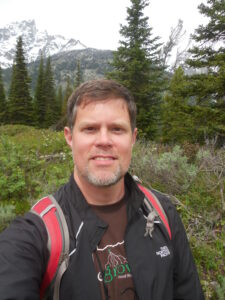
Christian Burgess
- Pronouns: he/him/his
- Title: Director of the Disaster Distress Helpline
- Bio: Based in Gresham, Oregon, Christian Burgess, MSW, is Director of the Disaster Distress Helpline (DDH), a program of the U.S. Substance Abuse and Mental Health Services Administration administered by the not-for-profit Vibrant Emotional Health. Christian became Director of the DDH in 2012, helping to launch the program, after having joined Vibrant in 2010 as the Training Coordinator for the Oil Spill Distress Helpline project. The DDH is the only crisis hotline national in scope and dedicated to providing 24/7/365 support for survivors and responders of natural or human-caused disasters. Immediately prior to his work at Vibrant, Christian worked for over 10 years in youth violence prevention and trauma intervention in New York City, including as Director of School Programs at Safe Horizon, one of the nation's largest service providers for victims of crime & abuse. Christian ran his 15th marathon in November 2022, the Marine Corps in Washington, D.C., and is working on running a half-marathon in every state.
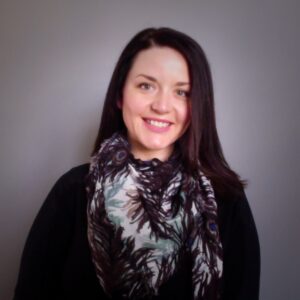
Lidija Hurni
- Pronouns: she/her/hers
- Title: Program Manager, Disaster Distress Helpline
- Bio: Lidija Hurni has worked in the field of mental health for over ten years, with concentrations in disaster behavioral health, family therapy and suicide prevention. Lidija holds a Master’s Degree in Counseling from Indiana University and is a Licensed Marriage and Family Therapist. She is the current Assistant Director of the Disaster Distress Helpline (DDH) at Vibrant Emotional Health. Prior to joining Vibrant, Lidija was the Clinical Director of the Indiana University-Purdue University Fort Wayne Counselor Education program, and provided mental health counseling to individuals, couples, and families in a private practice.

Olivia Stein
- Pronouns: they/them/theirs
- Title: Director of Videophone Crisis Line Services at DeafLEAD
- Olivia Stein, MSW, is the Director of Videophone Crisis Line Services at DeafLEAD, Columbia, Missouri. They manage two videophone hotlines, with one of them being the Disaster Distress Helpline - Videophone (DDH VP). They are a life-long Deaf individual who appreciates and values ongoing direct communication, collaboration, and connection for the diverse, inclusive Deaf and Hard of Hearing (D/HH) community. Their main goals are to be a continuous advocate in reducing systemic barriers, and ensuring resources are made accessible and provided for the D/HH, especially resources that focuses on mental health and disaster crisis care. Olivia currently finds themselves settling along the Front Range of Colorado. Olivia is the third generation of their family who is Deaf and communicates using American Sign Language. When they are not at work, you can often find them enjoying the outdoors, and spending quality time with their family.
11:45 am - 1:00 pm Lunch
Day Two Lunch at the University Dining Hall
Visit Dining & Retail on Campus for more information on the Mary Graydon Center's Terrace Dining Hall, where meals are comped for all registered guests.
1:15 pm - 2:45 pm Session One
Roundtable: Colorado Crisis Education and Response Network: 20 years of evolving and sustaining a state's disaster behavioral health partnership
Aimee Voth Siebert, Curt Drennen, Nancy Lewis, Melissa Zotara, and Ian AndersonConstitution Hall Room 1
Abstract: The Colorado Crisis Education and Response Network (CoCERN) is a statewide asset based in community partnerships formed to deliver effective, efficient and professional disaster behavioral health services. Since its beginning, CoCERN's strength lies not in members' strict adherence to its protocols and guidelines, but in its sustained convening and relationship building. Organizations whose psychosocial missions, jurisdictions, and skills could compete for disaster status or funding instead strengthen the social fabric and natural resilience of distressed communities though collaboration. Across time, staff turnover, and changing disaster priorities, CoCERN has helped ensure that Colorado disaster systems keep disaster behavioral health capacity and considerations in focus.
This roundtable will feature voices and insights from CoCERN's diverse geographic and disciplinary membership. The roundtable participants will examine CoCERN's origins in disorganized, competitive community responses and how the network's framework aims to create partnership and structure from chaos. Stories from the field and training initiatives from CoCERN partners, such as:
- Expectations of disaster behavioral health in rural response
- Navigating DBH responsibilities and community care in mass shootings
- Disaster spiritual care vis a vis disaster behavioral health
Planning for disaster behavioral health in Denver’s metro region will highlight how CoCERN has evolved and how it benefits individual member organizations when they are leading a disaster behavioral health response. Roundtable participants will focus discussion on a collective approach to "self-care" and how CoCERN coordination can inject helpful norms and capacity to protect DBH providers during early and long-term response and recovery efforts. Symposium attendees will leave the roundtable with innovative partnership ideas to source disaster behavioral health capacity in their own communities, effective planning and convening practices to keep improving disaster behavioral health work, and resources to cultivate a collective self-care model among DBH providers that helps sustain us all in continuously challenging times.
Host
- Name: Aimee Voth Siebert
- Title: Disaster Behavioral Health and Inclusion Program Manager
- Bio: Aimee joined the Office of Emergency Preparedness and Response in Colorado’s Dept. of Public Health and Environment in May 2012. Aimee holds a Masters in International Disaster Psychology from the University of Denver and has grown multi-disciplinary emergency knowledge and experience in both domestic and international settings. In her role with the state Disaster Behavioral Health team, Aimee supported Colorado responses to the 2012, 2013, and 2018 Wildfire Seasons, the September 2013 floods, multiple Colorado shootings, and the COVID-19 response. In 2015, she deployed with CDC's Ebola Response in Sierra Leone as a Health Promotion Specialist and in October 2017, she led a Colorado disaster mental health team to support Puerto Rico's response to Hurricane Maria. Aimee promotes a people-centered and adaptive functioning lens in emergency planning and response. She helped develop and contributes ongoing leadership to Colorado’s Access & Functional Needs Program, which began in 2018. She trains diverse community and emergency organizations in disaster behavioral health, access & functional needs, community inclusion, and crisis communications. She is certified as a State Crisis Counseling Program trainer and grant writer, a CDC Crisis and Emergency Risk Communication Trainer, a Strategies for Trauma Awareness & Resilience Practitioner and an Advanced Public Information Officer.
Presenters
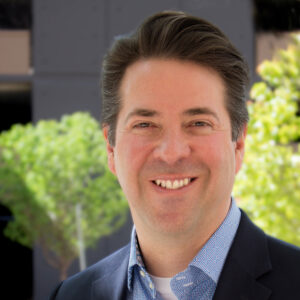
Curt Drennen
- Title: Disaster Behavioral Health and Recovery Chief
- Bio: Dr. Curt Drennen is a licensed clinical psychologist working for the Colorado Department of Public Health and Environment Office of Emergency Preparedness and Response as the state’s Disaster Behavioral Health and Community Recovery Branch Chief. In this role, he supports the Disaster Behavioral Health and Community Inclusion Program and the Healthcare Worker Resilience and Retention Initiative. In addition, he has lead the long-term development of the State’s disaster behavioral health system through community partnership and education and integration into ESF 8. Curt has led the Colorado behavioral health response to over 13 events of significance including natural disasters, public health crisis and major community violence. Dr Drennen has led 9 CCP programs and has trained dozens of other programs across the country over the past 21 years. In addition to facilitating all five components of the CCP curriculum, he trainings groups in PFA, Disaster Emotional Intelligence: Understanding and Responding effectively to Stress, in addition to being an Adjunct Professor at the University of Denver’s MA in International Disaster Psychology teaching Disaster Mental Health. Dr. Drennen received his Masters and Doctorate from the University of Denver in Clinical Psychology in 2000 and 2001, his Bachelors of Science in Nursing from the University of Kansas in 1992 and his Bachelors of Science in Psychology, Chemical Science and Pre Medicine from Kansas State University in 1989. In 2020, Dr. Drennen became a certified Emergency Manager.
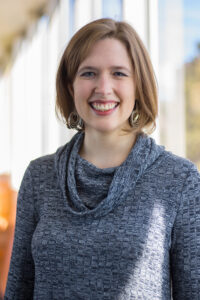
Nancy Lewis
- Title: Former Director, Colorado Organization for Victim Assistance
- Bio: Since January 2023 Nancy is a consultant with Valor Technical Cleaning doing training and building relationships with victim advocates across the US.
- Nancy was the Executive Director for the Colorado Organization for Victim Assistance (COVA) for 28 years. COVA is a membership agency dedicated to building a collaborative environment where all crime victims are given the best opportunity to heal and restore balance to their lives. COVA hosts an annual conference with over 1000 attendees, a basic and advance academy and training in the Victim’s Rights Act, Vicarious Trauma and Cultural Considerations. COVA responded to mass tragedies in Colorado and, provided a crime victim emergency fund of over 1 million dollars annually, provided paid internships for students interested in victim advocacy, provided case management for Human Trafficking Victims and monitored legislation that dealt with crime victim issues.
Other employment consisted of being the Training Director of Callanetics Franchise Corp, The Executive Director of WomanSchool and Westminster Youth Resource Center, the Training Coordinator of Models at Prevention, teacher at the Training Resources for Youth in New York City and a case manager in Harlem for New York Department of Social Services. Nancy started her career at a very early age.
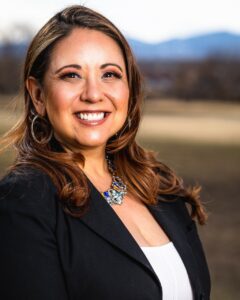
Melissa Zotara
- Pronouns: she/her/hers
- Title: Disaster Coordinator, WellPower/Mental Health Center of Denver
- Bio: Melissa has been with Wellpower since May 2014 and was working in Risk Management when the opportunity to take over the Disaster Behavioral Health coordination arose. Working for the last 8+ years to create a robust disaster behavioral health and emergency preparedness program for Wellpower, she also serves as a leader in the region for DBH and the integration of behavioral health resources into emergency management.She received her undergraduate degree in Kinesiology from the University of Colorado, Boulder and a Masters in Leadership of Healthcare Organizations from the University of California, San Diego. Working across the healthcare spectrum for over 20 years she has unique perspectives into many types of healthcare operations, patient care delivery systems, direct patient care, healthcare finance and the patient experience.Melissa's goal is to continue to advocate for the inclusion of behavioral health and DBH into emergency response and planning.
- Website: WellPower
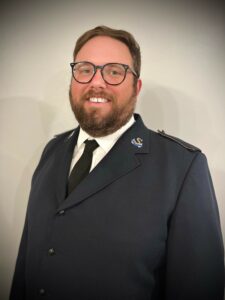
Ian Anderson
- Title: COVOAD Co-Chair/The Salvation Army
- Bio: Ian Anderson is a US/UK citizen with over 14 years of emergency management experience. Currently working for The Salvation Army's Intermountain Division, Ian is the Director of Emergency Disaster Services and Service Extension, covering CO, UT, WY, and MT. He also serves as the Chair for Colorado Voluntary Organizations Active in Disaster (COVOAD), a forum where CO NGOs share knowledge and resources throughout the disaster cycle. Ian worked for The Salvation Army in New York City as the Response Coordinator and New York City Regional Manager, as well as serving as the Co-Chair for the Donations and Logistics Committee within NYC Voluntary Organizations Active in Disasters (VOAD) and liaison to the NYCEM Citywide Logistics Committee. Ian works in close collaboration with partner NGOs, for-profits, and government sector partners to maintain vital relationships and plans. Large-scale international disaster response experience includes deployments to Haiti following the earthquakes in 2010 and the earthquake, tsunami, and liquefaction in Indonesia in 2018. Ian's domestic experience ranges from serving as the Incident Commander for TSA's Hurricane Harvey response, to taking on the role as the Logistics Chief in New York City and the surrounding region following Hurricane Sandy. Ian has received training in multiple FEMA IS courses, Amateur Radio (KO2IAN), TSA/Mental Health Psychological First Aid, HSI Medic First Aid Train the Trainer, as well as training on the Sphere Project and Standards in International Disaster Response. Ian has earned an Executive Master’s Degree in Emergency and Disaster Management at Georgetown University as well as a Bachelor of Arts Degree in Emergency Management & Business Continuity at Metropolitan College of New York.
*Presenting: Mass Violence Responses
Anita Ahuja, Mary Vail WareConstitution Hall Room 2
Presentation One
Mass Violence Response: Collaborations Between State and County Responders and Behavioral Health Partners
Abstract: This presentation will provide information on state and local responses to prior mass violence incidents and effective collaborations with behavioral health partners. The incidents include shootings at the Route 91 Harvest Festival in Las Vegas, the Valley Transportation Authority in San Jose, the Borderline Bar and Grill in Thousand Oaks, the Inland Regional Center shooting in San Bernardino, the Gilroy Garlic Festival shooting in Gilroy and the September 11th attacks.
Best practices for behavioral health connections during emergency management planning processes, while deploying and responding to an incident, and building partnerships with key stakeholders for long-term resiliency efforts will be highlighted. The value of victim forums, service provider forums and grant-funding will be addressed. The presentation will also cover the needs of first responders.
Engagement with worker's compensation providers, trauma recovery centers and non-profit organizations will be discussed. Emphasis will be placed on trauma-informed practices and assessments.
This presentation will also cover the recommendations and checklists from the federal Office for Victims of Crime Mass Violence Response Toolkit for the planning, response and recovery phases.
Presenter
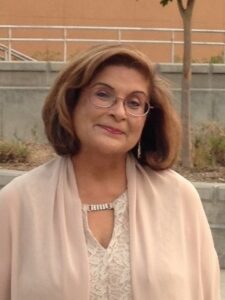
Anita Ahuja
- Pronouns: she/her/hers
- Title: Director, Victim/Witness Program, Department of the Prosecuting Attorney, County of Maui
- Bio: Anita Ahuja has responded to mass violence incidents for twenty-two years. Her background includes serving as the Manager for Mass Violence Response and Grant Programs and Ombudsperson for Crime Victims with the California Victim Compensation Board where she focused on mass violence emergency response planning and meeting the short and long-term needs of victims of mass violence in California. In that capacity, she responded to victims of multiple incidents including the September 11th attacks, the 2015 terrorist attack in San Bernardino, the 2017 Route 91 Harvest Festival shooting in Las Vegas. the Borderline Bar shooting in Thousand Oaks, the Chabad House Synagogue shooting in Poway as well as the Gilroy Garlic Festival and Valley Transportation Authority shootings in Santa Clara County and other California incidents. She also managed federal crisis response grants for some of these incidents.
Ms. Ahuja is a mass violence response consultant for the federal Office for Victims of Crime Training and Technical Assistance Center. In this capacity, she has assisted the States of Hawaii and Arizona with facilitating stakeholder meetings and creating State mass violence emergency response plans. Most recently, she was deployed to Uvalde to assist with the response to victims of the Robb Elementary School shooting and is currently assisting with the response to the incidents in Monterey Park and Half Moon Bay, California.
She currently serves as Director of the Victim/Witness Program for the Department of the Prosecuting Attorney in Maui County where she directs program services for victims of crime on the islands of Maui, Lanai and Molokai.
Ms. Ahuja is a co-founder of the National Leave No Victim Behind Conference series which focuses on serving victims of mass violence. Her credentials include an M.A. in Counseling Psychology and a B.A. in Political Science and Rhetoric.
Presentation Two
Mass Violence and the Evolution of Response
Abstract: As mass violence has become more prevalent, response needs as well as response capacity has shifted. This workshop will discuss these changes and available resources to build sustainable pathways to healing for victims, survivors, first responders, and communities.
Presenter:
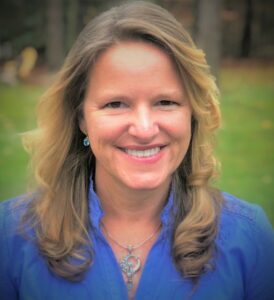
Mary Vail Ware, MSW, PMP
- Title: Director of OVC TTAC
- Bio: Mary Vail Ware, MSW, PMP is ICF’s Senior Director of Justice and Victim Services. She leads the following contracts/grants: Office for Victims of Crime Training and Technical Assistance Center (OVC TTAC), Bureau of Justice National Training and Technical Assistance Center, the International Terrorism Victim Expense Reimbursement Program, and the Improving Community Response to Victims of Mass Violence Training and Technical Assistance Project. She is Project Director for OVC TTAC. OVC TTAC provides victim-centered, trauma-informed training and technical assistance, and mass violence response for organizations/communities across the U.S. It is the home of the National Elder Fraud Hotline. Ms. Ware responded to the 9/11 Pentagon attack, the 4/16 Virginia Tech shooting, the Orlando Pulse shooting, the Las Vegas shooting, the Oxford High and MSU shootings, the Highland Park parade shooting, among others. She authored first in the nation legislation requiring Virginia emergency plans to include protection of crime victims’ rights.
- Links
Roundtable: We Are Each Other's Medicine: Community Health, Healing, and Hope
Annelle Primm, Jan Berger, Afiya Rice, Dior Lindsey, Willard Ashley, Nicole Wood, Donell BarnettConstitution Hall Room 3
Abstract: In the days following the shooting at Buffalo’s Tops Supermarket in May 2022, members of Black communities around the nation were devastated by this horrific act of racially motivated mass violence. All Healers Mental Health Alliance (AHMHA) and its partners responded with a sense of urgency. AHMHA, a non-profit formed after Hurricane Katrina in 2005, is a national network of professionals in mental health, social work, nursing, academia, law, first responders, and the faith community that facilitates culturally affirming responses to the mental health needs of Black and other historically marginalized communities in the aftermath of natural and human caused disasters.
Immediately following the shooting, AHMHA partners, with the help of the White House Office of Faith Based and Neighborhood Partnerships, Department of Homeland Security Center for Faith Based and Neighborhood Partnerships, and other federal agencies, identified Buffalo community members, pastors, and concerned residents and organized and convened ongoing communication based on built trust in community. This rapid response led to the establishment of in-person healing circles and a virtual healing circle initiative including training and delivery of circles funded by the New York State Office of Mental Health. In addition, this collaboration sharpened focus on the impact of racism and historical inequities on the Black community in Buffalo, NY which was also disproportionately affected by the COVID-19 pandemic.
As an outcome of these new relationships formed as a result of this tragedy, valuable collaborations emerged and have been sustained between and among the White House, federal agencies, mental health professionals, and faith and community groups.
Host
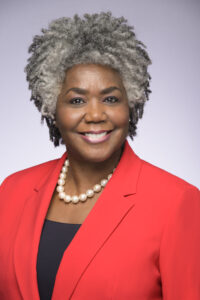
Dr. Annelle Primm
- Pronouns: she/her/hers
- Title: Chair and Convener, All Healers Mental Health Alliance
- Bio: Dr. Annelle Primm is a community psychiatrist and chair and convener of All Healers Mental Health Alliance (AHMHA). This national multidisciplinary group of mental health professionals, health advocates, first responders, and faith community leaders facilitates culturally aligned responses to the mental health needs of historically marginalized communities affected by disasters, both natural and human-caused. Since 2005, AHMHA has spawned collaborative action and delivered resources to help communities thrive following disasters such as Hurricane Katrina, Superstorm Sandy, the Flint, Michigan water crisis, Hurricane Maria, Hurricane Harvey, Hurricane Florence, COVID-19, the Tops Friendly Markets mass shooting in Buffalo, NY in 2022, Hurricane Ian and many more. AHMHA has organized numerous convenings and educational programs including the June 2019 National Conference on Culturally Competent Disaster Response in Baltimore, Maryland. Dr. Primm currently serves as Senior Medical Director of the Steve Fund, a non-profit which promotes the mental health and emotional well-being of young people of color. Previous leadership roles include Deputy Medical Director of the American Psychiatric Association and Medical Director of the Johns Hopkins Community Psychiatry Program. Dr. Primm is an adjunct/part-time, volunteer Associate Professor of Psychiatry on the medical school faculties of Howard University, New York University, and Johns Hopkins.
Panelists
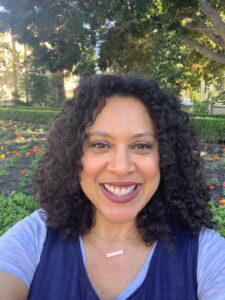
Jan Berger, MA
- Pronouns: she/her/hers
- Community Manager, Community Healing Network
- Bio: Jan Berger, MA., is the Community Manager at Community Healing Network (CHN), a 501 (c)(3) nonprofit. CHN is the only organization focused exclusively on building the global grassroots movement for emotional emancipation—mobilizing Black people across Global Africa to heal from, and extinguish, the lie of white superiority and black inferiority--the root cause of the dehumanization of Black people and the devaluing of Black lives. Jan hosts CHN's weekly virtual Emotional Lunch Break, sixty minutes of rest and resilience in a Black-owned space; and Rapid Response Ubuntu Healing Circles, in times of acute crises in the Black community. She also co-facilitates quarterly Emotional Emancipation Circle (EEC) 101 4-Week Intensives.

Afiya Rice, MS
- Pronouns: she/her/hers
- Title: Community Servant, R Healing Center, Inc
- Bio: Afiya J. Rice is a committed, hardworking mom and a loyal community servant dedicated to community healing and empowerment. She is a school counselor with 20+ years of experience addressing barriers to students’ academic performance and supporting students’ personal, social, emotional, and career development through a comprehensive school program that includes holistic, relevant, and wellness counseling techniques. In her 30+ years as a community facilitator, family advocate, and cultural healer, she has worked on various projects and committees to enhance the well-being and resiliency of residents on the Eastside of Buffalo. She is a business leader and commercial developer with a strong focus on building wealth through property renovations and establishing solid collaborations to create a walkable and safe community for children and families to live and thrive in. She earned an M.S. degree in Counselor Education and a B.S. in Health & Wellness, concentrating in aging studies with a minor in safety studies. She is certified in Kemetic Yoga, Kemetic Reiki, hypnosis, yoga as a peace practice, and worker cooperatives. As an AmeriCorps volunteer in the Athletes in Service to America program, she taught Buffalo Public School students media literacy, men's violence prevention, and cultural diversity. She enjoys many traditional and holistic healing practices.

Dior Lindsey, MSW
- Pronouns: she/her/hers
- Title: President, Buffalo Association of Black Social Workers
- Bio: Dior Lindsey is a born-and-raised resident of Buffalo, NY. With continued support from her family and loved ones, Dior has been able to achieve recognition at an early age. In 2004, Dior received the YMCA’s Exemplary Youth Award for her engagement and positivity. In 2006, Dior earned a Proclamation by Erie County Executive Joel A. Giambra which declared Tuesday, June 20, 2006 to be “Dior LeNay Lindsey” Day. She graduated from Leonardo da Vinci High School and received both the President Barack Obama’s Award for Outstanding Academic Achievement and also the President Barack Obama’s Award for Citizenship in 2010. In the same year, Dior was accepted as a McGowan/Urban Leadership Learning Community (ULLC) Program Scholar at Canisius College, which included a scholarship for four years. As a ULLC Scholar, Dior was provided with opportunities to utilize team-learning while maintaining the Jesuit tradition of being “men and women for and with others.” Upon graduating with a B.A. in Anthropology and Criminal Justice in 2014, she was accepted into the University at Buffalo’s School of Social Work to pursue her Master of Social Work degree. This program includes a trauma-informed care and human rights perspective into all aspects of its program, which has thoroughly informed her social work experiences. Upon graduation in 2016, Dior was awarded the Archie W. Swanson Honorary Award for her demonstration of creativity, integrity, warmth, respect for the dignity of others, and keen sensitivity. She soon gained her New York State Social Work License within the same year. Throughout her emerging career, Dior has served in roles such as a conflict-resolution/peace education group facilitator, substance abuse counselor, volunteer, board member, and recently became a trained Social Emotional Arts Facilitator through UCLArts & Healing. She currently serves as the President of the Buffalo Association of Black Social Workers and also works as the Program Coordinator of FamilyWorks Buffalo, which is a program of The Osborne Association. In her Coordinator role, Dior and her staff work to support children and families affected by a loved one’s incarceration in Western New York. FamilyWorks Buffalo offers free video-visiting services that allow children and families to maintain healthy relationships during a period of incarceration in eleven NYS Correctional Facilities. In addition, Dior is currently serving as one of the police trainers for the “Safeguarding Children of Arrested Parents” project in the Western NY area. Dior truly believes in the Maya Angelou quote that “Nothing can dim the light which shines from within.”
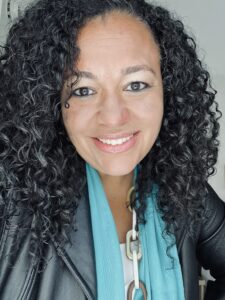
Nicole Wood, MPH
- Pronouns: she/her/hers
- Title: Deputy Director, DHS Center for Faith-Based and Neighborhood Partnerships
- Bio: Nicole C. Wood, MPH, MA serves as the deputy director for the U.S. Department of Homeland Security Center for Faith-Based and Neighborhood Partnerships, a center of the White House Office of Faith-Based and Neighborhood Partnerships. She brings expertise in responding to communities impacted by violence, neglect and exploitation, human-caused and natural disasters, disparities in health and in response to the safety and security of places of worship and community spaces.
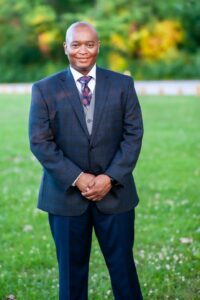
Donell Barnett, PhD
- Pronouns: he/him/his
- Title: President, Association of Black Psychologists
- Dr. Donell Barnett is a counseling psychologist with a personal mission of improving communities. Some of his previous work roles include Director of HIV Prevention Programs, Adjunct Professor of Psychology, Behavioral Health Clinic Director, and Chief of Field Investigations and Program Evaluation for the US Army Public Health Center. He now serves as the Deputy Director for Mental Health Clinical Operations at the Illinois Dept. of Human Services. His expertise and interests include trauma, the role of faith in wellness, and programs to improve the health and well-being of communities left out of economic and social growth. Donell is an alumnus of Langston University (B.A.), the University of North Texas (M.Ed), Oklahoma State University (Ph.D), and the Harvard University Strategic Management program. He has scholarly and popular press articles, technical reports, and policy papers to his credit. He is the proud recipient of several awards, with the most prestigious being the U.S. Army Bronze Star, Meritorious Service Medal, and the President’s Award from the Association of Black Psychologists. Dr. Barnett has the esteemed honor of serving as the current President of the Association of Black Psychologists. Along with his wife and son, the Barnett family calls Chicago’s southside their home.
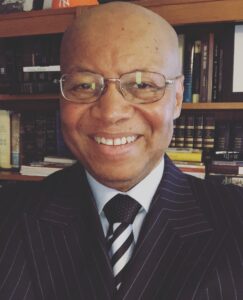
Willard Ashley, Sr., DMin, SCP, NCPsyA, CGP
- Pronouns: he/him/his
- Title: President & CEO, Dr. Willard Ashley, Sr.
- Bio: Willard Walden Christopher Ashley, Sr. is a retired professor of pastoral theology. July 2012 Ashley was granted tenure and appointed by President Gregg Mast as the first African American Dean of the Seminary at New Brunswick Theological Seminary (NBTS). Ashley is the CEO of Dr. Willard Ashley, Sr., LLC, Upper Montclair, New Jersey. Under this umbrella, Dr. Ashley conducts webinars, consults, counseling, and coaching. Willard Ashley is a vocational coach with the Center for Career Development and Ministry.
Ashley is the founder and senior pastor of the Abundant Joy Community Church, Jersey City, New Jersey. Reverend Ashley has served for 41 years as the pastor at various congregations. He is on the Advisory Board of Andover Newton Seminary at Yale Divinity School, Vice Chair, Bergen County Human Relations Commission, New Jersey State Certified, and a Nationally Certified Psychoanalyst. Rules for 21st Century Radicals is Ashley's fourth book. Memberships include the National Association for the Advancement of Psychoanalysis, the American Association of Marriage Family Therapists, and the American Group Psychotherapy Association. Find Ashley listed in Marquis Who's Who in America and Who's Who in the World. He is married to Tanya Pagan Riggio Ashley, MD FAAP. Willard Ashley is the proud father of one adult son, Chris. Serafina, an 11-pound Shih Tzu, brings them great joy.
3:00 pm - 4:30 pm Session Two
Roundtable: Blue Sky Partnerships: Creating an effective disaster behavioral health response
Megan Sullivan, Jaime Angelini, Ruth Kaluski, Maureen Brogan, & Jamie Bodrog-PowellConstitution Hall Room 1
Abstract: The Disaster and Terrorism Branch (DTB) was officially formed as the behavioral health authority in New Jersey for response community Crises. The team is available for emergency deployment 24/7. DTB is involved across all four phases of emergency management (i.e., mitigation, preparedness, response, and recovery).
The DTB has two primary functions: Training & Technical Assistance (TTAC), and Disaster Response. The staff provide a range of training and technical assistance to partner agencies and communities addressing the behavioral aspects of such threats as:
- Community Response to Mass Violence (shooting, bombing, vehicle attacks, others)
- Natural Disasters
- Active Shooter/Active Assailant
- CBRNE/Radiation Emergencies
- Collective Violence, Civil Unrest and Crowd Behavior
- Public Health emergency topics, such as, COVID-19, Ebola, flu, etc.
DTB Partnerships
DTB has partnered with the Mental Health Association in New Jersey (MHANJ) for two decades to plan for and respond to natural disasters and community crises. MHANJ has a 75-year history in leading the transformation of our state's behavioral health system from the deinstitutionalization of state psychiatric hospitals to today's focus on the integration of physical health and behavioral health. DTB has coordinated with MHANJ on several FEMA/SAMHSA Crisis Counseling Programs after presidentially declared disasters such as Superstorm Sandy and COVID-19.
The partnership can be highlighted with the joint creation of the Disaster Response Crisis Counseling Certification (DRCC). This initiative began in 2004 as a response to the chaotic influx of volunteer mental health responders after the 9/11 terrorist attacks. The need for collaboration to create a vetted, well-trained and exercised cadre of behavioral health responders became a priority. The DRCC continues to be co-managed by the DTB and MHANJ and has over 450 volunteers trained, vetted, and prepared to respond to behavioral health crises anywhere in the state of New Jersey.
Since 2000, the TLC has been providing support to communities affected by traumatic events such as homicide and illness; the most difficult being suicide.
The dual mission of the TLC is excellence in suicide prevention and trauma response assistance to schools following unfortunate losses due to suicide, homicide, accident, and illness. This is accomplished through county, regional, and statewide conferences, training, consultation, onsite traumatic loss response, and technical assistance. The purpose is to ensure that those working with youth from a variety of disciplines and programs have up-to-date knowledge about mental health issues, suicide prevention, traumatic grief, and resiliency enhancement.
DTB has also collaborated with the Traumatic Loss Coalition of New Jersey (TLC). Since 2000, the TLC has been providing support to communities affected by traumatic events such as homicide and illness; the most difficult being suicide. The TLC has created an expanding statewide network that effectively works to prevent suicide and promote hope, healing, and resiliency in the aftermath of traumatic loss.
Throughout the COVID-19 SAMSHA funded Crisis Counseling Program, DTB partnered with the TLC for cross-training in nationally evidenced based models such as Skills for Psychological Recovery.
As we look forward to continuing this partnership, we are focusing training on emerging threats such as the behavioral implications of climate change.
In addition to the trauma caused by the increasing frequency and intensity of climate-fueled disasters, rising global temperatures also play a part in social tensions boiling over in communities, schools, and workplaces. There is also an important nexus between climate change and violence potential, ranging from interpersonal violence to civil unrest, extremism, and even war. Disaster Behavioral Health Responders must begin to reflect on this reality and be in step with the growing body of research addressing climate change and human behavior.
This roundtable will focus on the creation and maintenance of these partnerships during blue sky days which has better prepared New Jersey to respond in an organized, effective way in the immediate aftermath of a disaster.
Host

Megan Sullivan, LPC, LCADC
- Title: Director, Disaster & Terrorism Branch, Division of Mental Health, and Addiction Services NJ Department of Human Services
- Bio: Ms. Sullivan is the Director of the Disaster & Terrorism Branch of the Division of Mental Health and Addiction Services. She is a certified Disaster Response Crisis Counselor, trained in the FEMA and Red Cross models and is currently a part of the Division of Mental Health and Addictions’ Disaster and Terrorism Branch which develops contingency planning for the public’s mental health needs surrounding various types of emergencies. She serves on the Operations Board of the Disaster Response Crisis Counselor Certification and is one of the trainers for the DRCC curriculum. She is a member of the NJEMS taskforce and has deployed with them to the US Virgin Islands. Sullivan is a graduate of Villanova University and holds a Master of Education in Counseling Psychology from Rutgers, the State University of New Jersey. She holds licenses as a Professional Counselor and Clinical Alcohol and Drug Counselor. She has also trained in marital and family counseling at The Center for Family, Community and Social Justice in Princeton, NJ.
Panelists
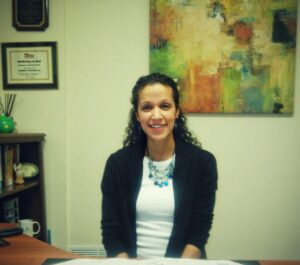
Jaime Angelini
- Job Title: Statewide Director of Disaster Services and Special Projects Mental Health Association in New Jersey
- Bio: Jaime Angelini is the Statewide Director of Disaster Services and Special Projects at the Mental Health Association in NJ (MHANJ). For two decades she has worked at MHANJ as a director, mental health trainer and mental health advocate. In addition to her work at MHANJ, Jaime is a responder and trainer for the New Jersey Department of Human Services’ Disaster and Terrorism Branch. Jaime is a certified Mental Health First Aid Instructor(Adult, Youth and Teen), Suicide Prevention Trainer, Stress First Aid Trainer, Parent Educator, Disaster Response Crisis Counselor and a certified National trainer in Skills for Psychological Recovery (SPR).
- Mental Health Association in NJ Facebook
- MHANJ LinkedIn
- MHANJ Instagram
- MHANJ Twitter
- MHANJ YouTube
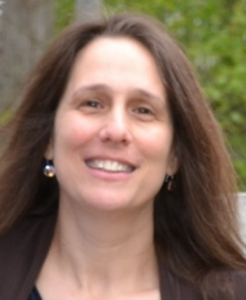
Ruth Kaluski
- Title: Statewide Director-Mental Health First Aid, Director-Career Connection Employment Resource Institute Mental Health Association in New Jersey
- Bio: Ruth Kaluski, MS, CRC, LMHC, is the Statewide Director of Strategic Programs at the Mental Health Association in New Jersey (MHANJ). Ruth is a Certified Rehabilitation Counselor and a Licensed Mental Health Counselor with over 25 years experience supporting individuals living with mental illness, substance use disorders and other co-occurring conditions. Ruth coordinates MHANJ's Mental Health First Aid (MHFA) program and is currently the lead in partnership with the New Jersey Council of County Colleges focusing on imbedding mental health awareness and suicide prevention training to New Jersey’s County Colleges. Ruth is an experienced trainer and advocate. She is a National Trainer for Mental Health First Aid (MHFA) and teaches the adult, youth, and teen curriculums locally. Ruth has been heavily involved in supporting disaster relief mental health programs during Hurricane Ida and the COVID-19 pandemic. Ruth holds a Master of Science from the Vocational Rehabilitation Counseling Program at the University of Wisconsin at Madison.
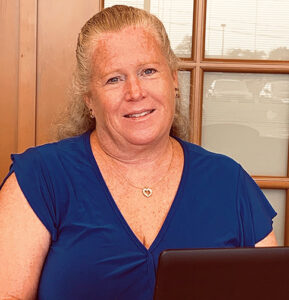
Maureen Brogan
- Title: Program Manager, Traumatic Loss Coalitions for Youth (TLC), Rutgers Health
- Bio: Maureen is the Program Manager for the Statewide Traumatic Loss Coalition. The Traumatic Loss Coalitions for Youth Program (TLC) at Rutgers-University Behavioral Health Care is New Jersey's primary youth suicide prevention program funded by the Department of Children and Families. The TLC is an interactive, statewide network that offers collaboration and support to those working with school-age youth. The dual mission of the TLC is excellence in suicide prevention and trauma response assistance to youth serving organizations following unfortunate losses due to suicide, homicide, accident and illness. Maureen is a Licensed Professional Counselor, Approved Clinical Supervisor and a Diplomate at the American Academy of Experts in Trauma. She is a Master Trainer in the evidence based practice of suicide prevention Question Persuade Refer. She is a certified Talk Saves Lives trainer for the American Foundation of Suicide Prevention and the assistant producer of Signs Matter: Early Detection online suicide prevention training for educators. She is a certified Psychological First Aid Trainer (PFA) and Skills for Psychological Recovery (SPR) for the National Child Traumatic Stress Network.
- Rutger's University Behavioral Health Care on Twitter
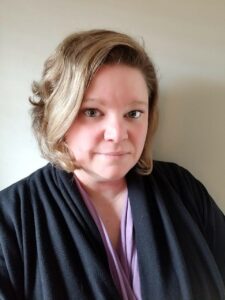
Jamie Bodrog-Powell
- Title: Deputy Director, Disaster & Terrorism Branch Division of Mental Health, and Addiction Services NJ Department of Human Services
- Bio: Jamie Bodrog-Powell is the Deputy Director of the Disaster & Terrorism Branch of the New Jersey Division of Mental Health and Addiction Services. She has more than 10 years of experience in the field of Emergency Management working to improve Mass Care response and helping disaster survivors in various capacities. Jamie has her BS in Homeland Security and Emergency Preparedness from Thomas Edison State University.
*Presenting: Self-Care for Providers & °Stress First Aid Workshop
Marcie Beigel, April Naturale, & Patricia WatsonConstitution Hall Room 2
Presentation One
Self-Care for Providers
Abstract: As we provide support to others, especially others in crisis, it is easy to forget that we need care also. It is easy of put all our energy on those experiencing the crisis. It is easy to forget how powerful a few minutes of self care can be. It is easy to stay in action.
Yet, the impact of taking a few minutes to focus on yourself makes a tremendous difference.
By taking care of yourself you are able to do more for others. By taking care of yourself, you will have focus when caring for others. By taking care of yourself, you will have more energy to support those in need. By taking care of yourself, you will be able to stay in the trenches longer. You are part a valuable part of the equation and need to give yourself the same care and attention you give to others.
This panel presentation is an experiential moment to take care of yourself. We are going to start with an experience of being. More accurately an experience with the possibility of being because being sometimes takes practice. Then we are going to explore our personal beliefs that hinder our being and help our being. The final piece of this workshop will be identifying small steps to take throughout each and every day to enhance being-ness. Being is not about the absence of action, it is about redefining action and clarity and intention at times while in action. This step is about creating lasting impact.
Presenter
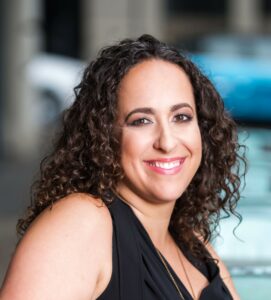
Dr. Marcie Beigel
- Pronouns: she/her/hers
- Title: Family Culture Expert
- Bio: For 25 years, Dr. Marcie has been creating culture change with families, schools, and organizations; sharing her tools and strategies with tens of thousands. She helps families shift from breakdown and disconnection to happy dances and memorable moments. She helps organizations build the bridge between mental health and business. Dr. Marcie believes the best way to create change is through inspiration and experience. This means her work, with both organizations and families is experiential, engaging, and practical because change only matters if it lasts.Dr. Marcie earned her doctorate from Teachers College, Columbia University and is a Board Certified Behavior Analyst-Doctorate Level. She is the best selling author of Love Your Family Again and Love Your Classroom Again. Love Your Family Again and Again and Again and Again is her new podcast that you can find on your favorite streaming platform. She is based in New York City, though loves to travel to her clients around the world. She has been a guest behavioral expert on national media, including FOX, ABC, and NBC. Sharing her passion for behavior has led her to speak at organizations ranging from individual school districts to the Royal Australian Navy to TEDxNaperville. For more information about her programs and training visit DrMarcie.com.
- Connect with Dr. Beigel on...
Presentation Two
°Stress First Aid
Abstract: Stress First Aid (SFA) is a peer-reviewed, evidence-based framework developed for health professionals to better manage and care for stress reactions within themselves and their team. In this training suitable for mental health professionals and disaster response teams at all levels, Patricia Watson and April Naturale takes participants through SFA to learn how to recognize when stress reactions are developing into long-term problems that inhibit a person from taking care of themselves, their loved ones, or the communities they serve. The trainers provide learners with the core principles of SFA, how to recognize maladaptive stress symptoms and behaviors, and methods for recalibrating one’s response to and relationship with stress.
Whether stress is caused by day-to-day responsibilities many healthcare workers face or the result of experiencing disasters and crises on the job (such as the COVID-19 pandemic), there are ways for frontline healthcare workers, first responders, and disaster management teams to minimize harmful stress responses for themselves and their teams. It is important for teams that face more stressors than typical to know how to come together and minimize any potential lasting impact before the stress leads to burnout, breakdown, substance misuse, or mistakes on the job.
Learning Objectives
- Identify the population(s) for whom Stress First Aid is useful intervention
- List the 4 levels of the Stress Continuum
- Define at least 3 of the 7 Core Actions of Stress First Aid
Continuing Education
1 CE for psychologists (all) and social workers in VA, NY, and DC.
Audience level: Introductory
Agenda: https://app.box.com/s/blcn6dii8gd3p1x4047cl6r2qm6w9fj3
Presenters
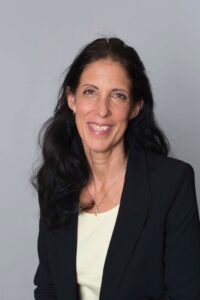
Dr. Patricia Watson
- Pronouns: she/her/hers
- Title: Senior Educational Specialist
- Bio: Patricia Watson, Ph.D. has been a psychologist for the National Center for PTSD since 1998. She has a doctoral degree in clinical psychology, and a postgraduate fellowship in pediatric psychology. She has been involved in extensive science-into-practice translation, intervention development, and program implementation, including co-authoring versions of Stress First Aid self-care/coworker support models for military, law enforcement, forest firefighters, nurses, probation officers, and rail workers, as well as public-facing versions for patients and clients. She has also co-authored books, articles, and manuals related to resilience and post-disaster intervention, such as Psychological First Aid (PFA) and Skills for Psychological Recovery (SPR).

Dr. April Naturale
- Pronouns: she/her/hers
- Title: AVP for Crisis and Wellness Programs at Vibrant Emotional Health
- Bio: Dr. Naturale is a traumatic stress specialist focused on response to disasters and mass violence. She has provided disaster and traumatic stress response training and consultation throughout the U.S. having led the NY mental health response to 9/11/01, the Boston Marathon bombing and responding to 12 of the last mass violence shooting events. Dr. Naturale also helped launch the National Suicide Prevention Lifeline and the Disaster Distress Helpline. Internationally, she has trained Psychologists in the Ukraine Military Service, Humanitarian Aid workers for the European Union and helped launch the European Centre of Expertise for Victims of Terrorism. Currently, Dr. Naturale is Vibrant Emotional Health’s AVP for Crisis and Wellness at the 988 Suicide and Crisis Lifeline and was also recently appointed by the U.S. Attorney General’s team of subject matter experts to review the law enforcement response to the May 24, 2022, Uvalde, TX, Robb Elementary school shooting.
There is no conflict of interest or commercial support between any presenter and Vibrant Emotional Health for this program.
Reiki & Posters
During this session, we provide an opportunity for attendees to talk to current students about their research into disasters and behavioral health care, along with a space for attendees to enjoy some reiki and acupuncture.
Posters
Addressing the Behavioral Health Needs of Refugee Populations during the COVID-19 Pandemic
- Abstract: The COVID-19 pandemic has precipitated a global mental health crisis, with the World Health Organization reporting a 25% increase in global prevalence of depression and anxiety. Studies suggest that in the midst of past global disasters, the needs of refugee populations have been neglected or overlooked. Refugees require targeted, culturally sensitive behavioral health interventions during the COVID-19 pandemic, as they are already enduring migration-related trauma and often rely on their tight-knit communities for support. Internalized cultural stigma of mental health illness in refugees may contribute to underutilization of behavioral health services. We conducted a study in an urban refugee population to determine 1) disparities in access to COVID-19 resources and information and 2) general, psychological, and socioeconomic challenges experienced by refugees in the Houston area during the COVID-19 pandemic. Our 49-question cross-sectional survey was administered to 44 refugees in Arabic, Burmese, Dari, English, Kiswahili, Nepali, Spanish, and Urdu. The majority of participants experienced anxiety about the effects of COVID-19 on their refugee community (89%), and heightened stress levels (75%). Financial difficulties were reported by 65%, specifically with paying rent (62%) and purchasing food (41%). Almost half relied exclusively on social media (48%) or family and friends (46%) for COVID-19 related news; 34% lacked access to essential information in their language. Our findings reveal systemic stressors predisposing refugees to negative mental health outcomes during the COVID-19 pandemic, providing essential data to behavioral health responders when implementing effective response strategies. Interdisciplinary collaboration is essential; behavioral healthcare providers, epidemiologists, social workers, and interpreters must work closely with local refugee services. Resettlement agencies and spiritual or community leaders play an integral role in supporting local refugees and collecting demographic data, rendering them an asset for health officials. Lastly, providers must consider cultural complexities in refugee patients and use a trauma-informed approach to behavioral healthcare.
- Presenter
- Name: Ila Guatham
- University: Baylor College of Medicine
- Degree Pursuing: MD
- Bio: Ila Gautham is a fourth-year medical student at Baylor College of Medicine pursuing Psychiatry. She is passionate about advocating for marginalized, multicultural populations and is Executive Director of the Human Rights and Asylum Clinic at Baylor. She has conducted research on refugee mental health, the effects of new legislature on survivors of human tracking, and the role of asylum clinics in forensic evaluations. Prior to medical school, she worked as an Emergency Medical Technician.
Climate Change and Hurricanes: Impacts on Communities and Disaster Relief Worker Mental Health
- Abstract: First responders across the gulf south may be at greater risk of developing post-traumatic stress disorder due to their constant exposure to critical incidents including hurricanes and torrential flooding. When a hurricane hits the state of Louisiana or surrounding areas, first responders are often living within the impacted community. This research examines the associations between PTSD and resilience and PTSD and social support among hurricane relief first responders. The current study investigates disaster relief first responder perceived social support, resilience, and PTSD. This study utilizes a demographic questionnaire, the Connor-Davidson Resilience Scale (CD-RISC), the Interpersonal Evaluation List (ISEL), and the PTSD Checklist for DSM-5 (PCL-5). A Pearson correlation coefficient was computed to assess the relationship between PTSD symptoms and social support. There was a moderately strong negative correlation between the two variables, r = -0.34, N = 129. A Pearson correlation coefficient was computed to assess the relationship between PTSD symptoms and resilience. There was a moderately strong negative correlation between the two variables, r = -0.44, N = 129. Like previous research on first responders, individuals with higher levels of social support endorse lower levels of PTSD symptoms, and individuals with higher levels of resilience endorse lower levels of PTSD symptoms.
- Presenter
- Name: Laura Rohm
- University: The Chicago School of Professional Psychology at Xavier University of Louisiana
- Degree Pursuing: PsyD
- Bio: My name is Laura Rohm, and I am a student at TCSPP at Xavier University of Louisiana. At this time, I am completing my clinical internship at the University of Arkansas for Medical Sciences, focusing on integrative healthcare. My current research interests include: resilience, social support, PTSD/acute stress, and natural disaster.
Camp Morning: Grief and Loss Support for Children and Families
- Abstract: It is estimated that 5 million US children will experience the death of a parent or sibling before the age of 18 (Burns et al., 2020). 10- 20% of the bereaved population will experience complicated or prolonged grief disorder (Melhem et al., 2013). Children who experience prolonged grief are more likely than non-bereaved peers to suffer from depression, insomnia, drug and alcohol abuse, self-harming behaviors, and suicidal ideation (Bylund-Grenklo et al., 2016). A widely used intervention to address childhood bereavement are grief camps, but the current offerings of camps have inadvertently caused barriers to care due to issues of insufficient resources, a narrow scope of represented bereavement, lack of cultural considerations and limitations to providing follow-up care to children and families following the completion of camp. Camp Morning is an organization focused on grief and loss support for children ages 5-15 and their families. It seeks to address the current gaps in bereavement care by providing developmentally and culturally appropriate grief services to children while also increasing their caregivers’ and communities’ ability to support them in this process. By assessing the impact of services, Camp Morning can be replicated by other communities allowing for improved grief care to bereaved children in the United States. Providing quality care requires increasing competence in mental health professionals during a crisis or disaster. Competence of a therapist may be defined as the acquisition of the knowledge and skill needed to treat clients and achieve expected results (Fairburn & Cooper, 2011). Students who are engaged in experiential clinical training and en vivo supervision demonstrate an increased level of clinical skill and increase of knowledge in clinical application (Landreth, 2012).The Camp Morning model allows for a greater understanding of these change mechanisms enables the clinician to apply them more effectively to meet the particular needs of a crisis (Scharefer, 2009).
- Presenters
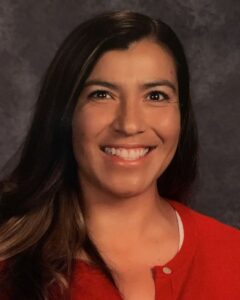
Danielle Lascano, Ed.D., LMFT, RPT
-
- University: Azusa Pacific University
- Bio: Danielle Lascano, EdD, LMFT, RPT is the chair of the Department of Marriage and Family Therapy and director of the MS in Counseling Psychology with an emphasis in children and adolescents at Azusa Pacific University. She is a Licensed Marriage and Family Therapist, a Registered Play Therapist and a Certified Grief Professional.
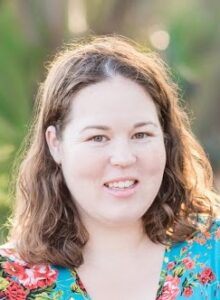
Kristen Watson, LMFT, RPT
-
- University: Loma Linda University, Counseling and Family Services
- Degree Pursuing: Doctorate in Marriage and Family Therapy
- Bio: Kristen Watkins is an Assistant Professor in the Masters of Counseling with an emphasis in children and adolescents program at Azusa Pacific University. She is a Licensed Marriage and Family Therapist and a Registered Play Therapist. She serves as camp director of Camp Morning, a grief and loss summer camp for children and support for their families.
4:45 pm - 6:15 pm Session Three
*Roundtable: The Intersection of Suicide Prevention and Disaster Behavioral Health
Christian Burgess, Kelly Clarke, Olivia Stein, Lanada Williams, & Jamie BrillConstitution Hall Rooms 1-3
Abstract: When disaster strikes, it disrupts the ecosystem of the individual and community. Support systems and the basic care structures are shaken, leaving those who are most highly impacted more vulnerable to developing mental health concerns such depression and even suicide. Hear from leaders in suicide prevention including the 988 Suicide and Crisis Lifeline, Disaster Distress Helpline and disaster behavioral health clinicians on nationwide efforts to decrease suicide rates and address diverse communities most at risk in the aftermath of both natural and human caused disasters.
Host

Christian Burgess
- Pronouns: he/him/his
- Title: Director of the Disaster Distress Helpline
- Bio: Based in Gresham, Oregon, Christian Burgess, MSW, is Director of the Disaster Distress Helpline (DDH), a program of the U.S. Substance Abuse and Mental Health Services Administration administered by the not-for-profit Vibrant Emotional Health. Christian became Director of the DDH in 2012, helping to launch the program, after having joined Vibrant in 2010 as the Training Coordinator for the Oil Spill Distress Helpline project. The DDH is the only crisis hotline national in scope and dedicated to providing 24/7/365 support for survivors and responders of natural or human-caused disasters. Immediately prior to his work at Vibrant, Christian worked for over 10 years in youth violence prevention and trauma intervention in New York City, including as Director of School Programs at Safe Horizon, one of the nation's largest service providers for victims of crime & abuse. Christian ran his 15th marathon in November 2022, the Marine Corps in Washington, D.C., and is working on running a half-marathon in every state.
Panelists
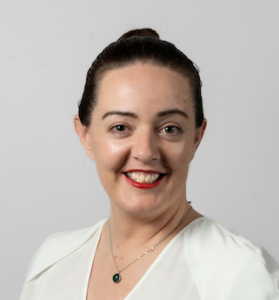
Kelly Clarke
- Pronouns: she/her/hers
- Job Title: Vice President, 988 Suicide and Crisis Line
- Bio: Kelly Clarke (she/her) is the Vice President, 988 Suicide and Crisis Line at Vibrant Emotional Health. Prior to this she was the Director of NYC Well, New York City’s 24/7/365 behavioral health helpline which responded to over 30,000 calls/texts/chats per month. Kelly has worked across a range of services that focus on improving access to behavioral health care for individuals.
She is a registered Psychologist with the Psychology Board of Australia and has worked throughout Australia, the United Kingdom and the United States in mental health, substance misuse, child protection, veteran issues and suicide prevention. Kelly serves on a variety of boards and advisory groups including as a Board Member and Accreditor for the International Council for Helplines.

Olivia Stein
- Pronouns: they/them/theirs
- Job Title: Director of Videophone Crisis Line Services at DeafLEAD
- Bio: Olivia Stein, MSW, is the Director of Videophone Crisis Line Services at DeafLEAD, Columbia, Missouri. They manage two videophone hotlines, with one of them being the Disaster Distress Helpline - Videophone (DDH VP). They are a life-long Deaf individual who appreciates and values ongoing direct communication, collaboration, and connection for the diverse, inclusive Deaf and Hard of Hearing (D/HH) community. Their main goals are to be a continuous advocate in reducing systemic barriers, and ensuring resources are made accessible and provided for the D/HH, especially resources that focuses on mental health and disaster crisis care. Olivia currently finds themselves settling along the Front Range of Colorado. Olivia is the third generation of their family who is Deaf and communicates using American Sign Language. When they are not at work, you can often find them enjoying the outdoors, and spending quality time with their family.
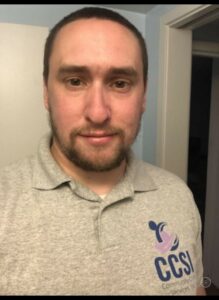
Jamie Brill
- Pronouns: he/they
- Job Title: Call Center Director
- Bio: Jamieson Brill, LMSW is the Call Center Director of Community Crisis Services, inc. (CCSI) in Hyattsville, Maryland. He oversees CCSI’s crisis hotline and crisis chat programs. He has worked at crisis intervention and suicide prevention hotlines since 2013 and received his Master of Social Work degree from the University of Maryland, Baltimore in 2020. Some of his passions within his work include supporting LGBTQ+ youth as well as empowering adults in recovery from substance use disorders.
- https://www.communitycrisis.org/
- Community Crisis Services Facebook
- Community Crisis Services Twitter
- Community Crisis Services Instagram

Lanada Williams
- Title: Deputy Director Access Helpline, Department of Behavioral Health
- Bio: Lanada Williams was born in St. Louis, MO. She has worked for the Department of Behavioral Health for over 10 years serving in different roles, the most current being the 988 Suicide Prevention Coordinator and Deputy Director of Access Helpline, and co-chair of the Suicide Prevention Resource Center Community of Practice and 988 Coalition.
Lanada Williams is a licensed psychotherapist (MD/DC/NJ) with expertise in trauma and a trained SafeTalk facilitator for the past 15 years, she has specialized in conflict, trauma, crisis management, and major transitions. Lanada is a member of the American Counseling Association, the Northern Atlantic Region Association of Counselor Education and Supervision, and DC Mental Health Counselor Association. Lanada also serves as the chair of the Board of Directors for No More Martyrs a mental health awareness campaign that seeks to build a community of support for Black women. Through a partnership with the Black Women’s Health Imperative, No More Martyrs was proud to launch ‘Sister Speak’, an initiative that will build awareness about suicide and Black women. Sister Speak highlights risk factors and warning signs of suicide as well as provides strategies on how to offer healthy support to someone at risk of suicide.
6:00 pm - 7:30 pm Dinner
Dinner at the University Dining Hall
Visit Dining & Retail on Campus for more information on the Mary Graydon Center's Terrace Dining Hall, where meals are comped for all registered guests.
Friday 26 May 2023
7:30 am - 9:00 am Breakfast
Day Three Breakfast at University Dining Hall
Visit Dining & Retail on Campus for more information on the Mary Graydon Center's Terrace Dining Hall, where meals are comped for all registered guests.
8:00 am - 12:00 pm Registration Check-In
Friday, May 26th Registration Check-In
Attendee and exhibitor registration check-in begins in Constitution Hall's entryway.
8:30 am - 9:30 am Keynote
*Day Three Keynotes
Amy Carol Dominguez, Josh Morganstein, Agustina BoehringerRooms 1-3
We are proud to have the following keynotes opening the first full day of Vibrant's Disaster Behavioral Health 2023 Symposium.
Opener

Amy Carol Dominguez, MPA
Keynotes
First
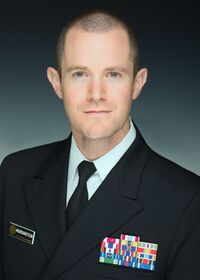
Josh Morganstein, CAPT, USPHS
- Pronouns: he/him/his
- Title: Deputy Director, Center for the Study of Traumatic Stress
Professor, Psychiatry and Military & Emergency Medicine
Vice Chair, Department of Psychiatry
Uniformed Services University - Bio: Dr. Joshua C. Morganstein is Professor and Vice Chair in the Department of Psychiatry and Deputy Director at the Center for the Study of Traumatic Stress (CSTS) in the Uniformed Services University of the Health Sciences and a Captain in the Commissioned Corps of the U.S. Public Health Service. He is a Chair of the Committee on the Psychiatric Dimensions of Disaster and Distinguished Fellow at the American Psychiatric Association. Dr. Morganstein received his medical degree from the Uniformed Services University of the Health Sciences. He completed a combined residency in Psychiatry and Family Medicine in the National Capital Consortium in Washington, DC. Dr. Morganstein leads the Disaster Mental Health and Public Health education and consultation services at CSTS. In this capacity he has overseen and provided support to dozens of national and global disasters, working with local, state, national and international partners to support the well-being of individuals and communities adversely impacted by these events. He has been an invited speaker and consultant for national organizations and federal interagency partners. Dr. Morganstein provided mental health subject-matter expertise to the United Nations’ 2015 Sendai Framework for Disaster Risk Reduction. He co-authored the only Curriculum Recommendations for Disaster Behavioral Health Professionals and was a co-author for a landmark Presidential report on the Impact of Climate Change on Human Health in the United States. Dr. Morganstein authored numerous articles, chapters, and technical reports on the mental health impact of various disaster events, including climate-related disasters, mass violence, terrorism, nuclear exposure, and pandemics and is Assistant Editor for the second edition of the Textbook of Disaster Psychiatry. He has studied the effects of stress and trauma in organizational settings, including the military drone intelligence community as well as personnel impacted by the 2013 mass shootings at the Washington Navy Yard. Dr. Morganstein is currently working with the United States National Guard to better understand risk and protective factors associated with COVID-19 deployments on the psychological health and operational readiness of service members.
Second
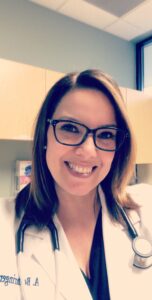
Dr. Agustina Boehringer, DMSc
- Pronouns: she/her/hers
- Title: Chief Medical Officer and Acting Director of Emergency Response, Heart to Heart International
- Bio: Dr. Agustina Boehringer is the Chief Medical Officer and Acting Director of Emergency Response at Heart to Heart International, an NGO that specializes in improving access to healthcare in medically under-resourced communities across the world, with a particular focus on medical relief after disasters. In her role, Dr. Boehringer oversees the medical programs and services provided by the organization and works to ensure that they are delivered with the highest standards of quality and efficiency.
She began her medical education at the University of Buenos Aires Medical School and later obtained a Master of Science in Physician Assistant Studies from Northeastern University in Boston, as well as a Doctor of Medical Science with a concentration in Global Health and Disaster Medicine from Lynchburg University.Dr. Boehringer has been practicing clinically in the field of Emergency Medicine since 2004, and has held various leadership positions in the medical field. She is currently the Chair of National VOAD’s Disaster Health Committee, holds a technical advisory position with the World Health Organization on emergency medical evacuation and pre-hospital medicine, and is a designated mentor for the Pan American Health Organization’s Emergency Medical Teams initiative.
Dr. Boehringer lives in the greater Kansas City area with her husband and three rescue dogs. She has two adult sons, one of whom is pursuing a degree in finance, and the other is an active duty airman in the United States Navy.
10:15 am - 11:45 am Session Four
Roundtable: Lived Experience: Trauma, Grief and Long-Term Healing from Terrorism and Mass Violence
Sally Lynch, Kathy Murphy, Amy O'Neill, Michael Morisette, Heather Martin, & Josh GarciaConstitution Hall Room 1
Abstract: This roundtable will feature perspectives of both survivors of mass violence and terrorism and professionals coordinating response and long-term recovery efforts for individuals, families and communities. Presenters will explore the benefits of peer support and community connections, effective methods of interagency and interprofessional collaboration, and offer promising practices for meeting the expansive and growing needs of communities newly impacted by tragedies.
Roundtable participants represent unique communities and voices within Tuesday's Children's Survivors of Tragedy Outreach Program (STOP), a coalition of survivors and organizations united for prevention and peer support with the goals of promoting long-term recovery and resilience and addressing the multi-layered impacts of targeted violence and preventable mass-scale tragedies.
The session will explore peer support across communities and among individuals with different experiences but a shared purpose. Collaboration across agencies like those represented in STOP is unique in the aftermath of mass violence, where communities often experience turf issues and challenges in interagency relations. STOP creates a safe space for expression and personal reflection that is not confined to one organization.
The session will demonstrate the importance of elevating the voices of survivors, experts in lived experience, to the level of clinical experts in order to more effectively engage those newly impacted by terrorism, mass violence or traumatic events. Survivors are credible voices and trusted resources that can cut through barriers to engagement and counter tendencies toward self-isolation that are common in those impacted by widescale traumatic events.
Multiagency response efforts in the early aftermath of traumatic events can often result in uncoordinated services, underserved groups, duplicated efforts and confusion among community members about supports and resources available to them. Bridging the gap between immediate crisis response interventions, such as PFA, and more sustained community-led efforts promoting long-term healing, such as the resiliency center model, would close crucial gaps in care.
In 2021, Tuesday's Children established the Survivors of Tragedy Outreach Program (STOP), inviting a cadre of founding members representing survivors and service providers from over a dozen communities to offer peer support and guidance in the wake of tragedies. Communities represented include: Virginia Tech, VA; Boston, MA; Thousand Oaks, CA; Newtown, CT; Aurora, CO; Littleton, CO (Columbine High School); Orlando, FL; Pittsburgh, PA; Las Vegas, NV; Hawaii; New York, NY; Military Gold Star families throughout the U.S.; and 9/11 families in both U.S. and Canada.
In 2022, a year that was marked by multiple acts of mass violence, STOP members issued a joint statement and call to action which can be accessed here: https://www.tuesdayschildren.org/wp-content/uploads/Joint-Statement.pdf
The roundtable will present this joint statement as both an example of a successful interagency collaboration and a powerful message amplifying the diverse voices of survivors representing multiple communities impacted by the decades-long problem of mass violence in the U.S.
Participating organizations in STOP include 7/20 Foundation, 10.27 Healing Partnership, Canadian National Day of Service Foundation, Choose Love, Give an Hour, JFCS Pittsburgh, Leave No Victim Behind, Open to Hope, Stars of Hope, The Rebels Project, The Trauma Impact podcast, and VTV Care.
Host
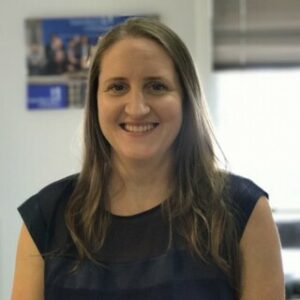
Sallie Lynch
-
- Title: Senior Program & Development Consultant, Tuesday’s Children
- Bio: Sallie Lynch, MA, Senior Program and Development Consultant at Tuesday’s Children, has 20+ years of experience serving families of 9/11 victims, responders and survivors, post-9/11 military families of the fallen, global victims of terrorism and communities impacted by mass violence. She is the principal researcher and author of Tuesday’s Children’s evidence-based Long-Term Healing Model, a training curriculum and online toolkit for community resilience. Sallie has provided capacity-building support, training and customized guidance in the aftermath of terrorism, mass violence and wide-scale trauma and loss to frontline service providers, community leaders and survivors in the U.S. and 34 countries engaged in Tuesday's Children's peacebuilding initiative Project COMMON BOND. She has secured federal and institutional funding for expansive multiyear projects addressing trauma and loss in response to terrorism, targeted violence and the COVID-19 pandemic. In the aftermath of 9/11, Sallie was co-investigator of a longitudinal research and intervention program with Columbia University School of Social Work and the FDNY Counseling Service Unit for 9/11 widows and children who lost a firefighter parent. She is co-author of FDNY Crisis Counseling: Innovative Responses to 9/11 Firefighters, Families and Communities (Wiley, 2006) and publications in U.S. international journals on long-term healing and community resilience. She has served on advisory committees for Vibrant Emotional Health’s Crisis Emotional Care Team (CECT), Peace of Mind Afghanistan (PoMA) and the UN Centre for Counter-Terrorism. She has presented at the Ford Foundation Center for Social Justice, the United Nations, the Department of Homeland Security and to other distinguished audiences. She holds an MA in Cultural Anthropology from Columbia University and a BA in Cultural Studies from Charles University, Prague, Czech Republic. Sallie is certified in Grief Education and Psychological First Aid and is co-founder of Tuesday’s Children’s Survivors of Tragedy Outreach Program (STOP).
Panelists
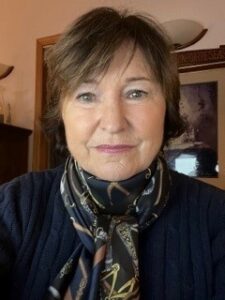
Kathy Murphy
- Title: Senior Program Director, Tuesday’s Children, co-founder Survivors of Tragedy Outreach Program (STOP)
- Bio: Kathy Murphy is a Senior Program Director. Kathy has been part of the Tuesday’s Children since shortly after the organization launched in 2002. She spearheaded a platform of teen programs creating the Helping Heals Program, Career Paths Program (CRC) and Project COMMON BOND (PCB) as well as a source in codifying the Long Term Healing Model (LTHM). Of particular note, Kathy has been the Program Director for Project COMMON BOND, an international program launched in 2008, bringing together young adults worldwide who have experienced loss due to terrorism or military conflict. To date over 1000 youths representing 34 countries have attended the annual eight day symposium. The curriculum is based on exploring the elements of dignity, cultural understanding, and conflict resolution with the objective of turning pain into purpose. She is a founding member of STOP, Survivors of Trauma Outreach Program which provides peer support and resources to communities impacted by mass violence. Kathy graduated from Providence College with a BA in Social Work. She brings a historical perspective to the story of Tuesday’s Children, having worked with hundreds of our family members for the better part of 20 years, assessing their needs and creating programmatic solutions as well as cultivating and maintaining global partnerships to support the mission of Tuesday’s Children. Kathy oversees all aspects of the programs and assists with fundraising initiatives, grant proposals, curriculum development, domestic and international outreach and program logistics. She is certified as a Grief Educator. Kathy often represents Tuesday’s Children at international conferences for victims of terrorism and at the invitation from the United Nations CCT was a participant in a closed session of leading NGO’s to codify best practices in meeting the needs of victims. She was raised in Manhasset, NY, is married with five children.
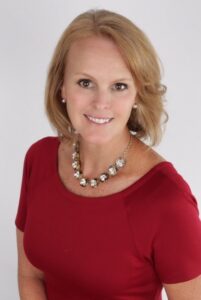
Amy O'Neill, MS, LPC
- Title: Licensed Professional Counselor; Survivor of the 2013 Boston Marathon Bombings; Host of “The Trauma Impact” podcast; and Consultant
- Bio: Amy C. O’Neill, MS, LPC, is a survivor of the Boston Marathon bombing, a founding member of the Survivors of Tragedy Outreach Program for Tuesday’s Children, a licensed professional counselor, part of the steering committee for the National Mass Violence and Victimization Resource Center, a member of the VOCA-NCJA and OVC TTAC Office of Justice Program Consultant Networks. She volunteers for the Crisis Emotional Care Team for Vibrant Emotional Health, the Disaster Distress Helpline peer support task force and the Disaster Mental Health Team for the American Red Cross. Ms. O’Neill hosts The Trauma Impact Podcast on Mental Health News Radio Network, focusing on trauma and recovery from mass violence. It has been downloaded around the world. Ms. O’Neill maintains a private counseling practice, is an Adjunct Instructor for the graduate Counseling Psychology Program at Chestnut Hill College, Philadelphia, PA, and is a student in the Doctor of Health Sciences Program at Bay Path University. She is passionate about connecting to and speaking with survivors around the world.
- Links
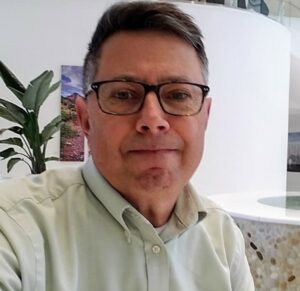
Michael Morisette
- Pronouns: he/him/his
- Title: Father of Kristina, one of 12 victims of the 2018 shooting at the Borderline Bar and Grill in Thousand Oaks, CA; Outreach Coordinator, Give an Hour
- Bio: Father of Kristina Kaylee Morisette, lost in the Borderline Bar & Grill shooting at Thousand Oaks California, on November 7th, 2018. Michael began volunteering in outreach to that impacted community, and currently works full time for a non-profit, Give an Hour, providing mental health support for other survivors of mass traumas. Michael is also a founding member of the non-profit Tuesday’s Children’s ‘Survivors of Tragedy Outreach Program’ (STOP)… a collaboration of Loved ones, Survivors, and Experts from various communities who support each other, and search for ways to be an encouragement to those impacted by mass violence incidents as they fall into the fold.
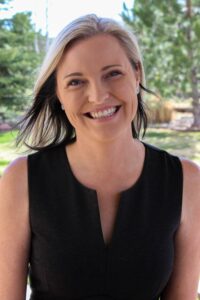
Heather Martin
- Title: Survivor of the 1999 Columbine HS mass shooting; Executive Director and CoFounder, The Rebels Project
- Bio: Heather Martin is co-founder of The Rebels Project, named after the Columbine mascot, that supports survivors of trauma resulting from mass trauma events. On April 20, 1999, Heather barricaded in a small office in Columbine High School for three hours until a SWAT group rescued her and the other students. Heather returned home physically uninjured, but the effects of the trauma she experienced that day continue to impact her. With The Rebels Project, Heather has traveled to impacted communities to connect with survivors and provide insight into the journey toward recovery, and The Rebels Project hosts an annual Survivor Retreat where survivors from around the country come together for a long weekend of healing and connection. As a national speaker, she advocates for informed responses to traumatic events from the perspective of a survivor and currently resides in Colorado where she teaches high school English in Aurora, CO.

Josh Garcia
- Pronouns: he/him/his
- Title: Former management at Pulse Orlando, survivor of the 2016 mass shooting at Pulse nightclub; Executive Director, Stars of HOPE
- Bio: Josh Garcia is a dedicated advocate for community healing through art. He was a management team member at Pulse Nightclub in Orlando, Florida, where he supported those impacted by the 2016 mass violence incident. Following the tragedy, he transitioned to a new role as the Program Manager at Stars of HOPE USA and is now Executive Director. In this role, he oversees the implementation of the Stars of HOPE program, which uses art as a tool for recovery and social connection in communities affected by disasters and violence.
*°Presenting: Providing Trauma-Informed Care in Disaster Response (with the Crisis Emotional Care Team)
Mark EvcesConstitution Hall Room 2
Abstract: When disaster strikes, what should we do? Whether a crisis is caused by a natural disaster, violence, loss of a community member or another emergency, timely, trauma-informed care is key to alleviating suffering and promoting resilience. Vibrant’s Crisis Emotional Care Team (CECT) mobilizes mental health crisis response teams to support survivors and communities in the moments they need it the most.
This beginner-level session begins with an introduction to the CECT philosophy, program structure, and volunteer role. We then explore trauma, grief and mental health characteristics following disasters, and how to adapt your approach accordingly. It also covers what to expect during a disaster response – from team dynamics and protocols, to the emotional phases of disaster and impact on you as a provider.
This compact primer is ideal for psychologists and social workers new to disaster relief, disaster relief workers new to mental health, students and anyone interested in doing crisis care. It is also required learning for CECT volunteers to deploy.
Learning Objectives
- List the Crisis Emotional Care Team’s three philosophies of service provision
- Conduct a functional needs assessment on people who have experienced a disaster
- Define the three culturally informed strategies for conducting assessments
- State at least three of the four conditions for Shared Traumatic Reality
Continuing Education
1.5 CE for psychologists (all) and social workers in VA, NY, and DC.
Audience level: Introductory
Agenda: https://app.box.com/s/mtof0id9aqsvabb24bt7esgc1fq5142v
Presenter
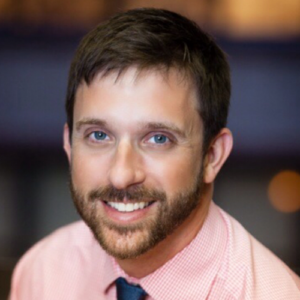
Mark Evces, PhD, ABPP
- Pronouns: he/him/his
- Title: Founder of WorkHaven, LLC
- Bio: Mark Evces, PhD, ABPP is an organizational consultant and clinical psychologist who has worked with scores of organizations and leaders to promote healthy, inclusive and generative work environments. Prior to founding WorkHaven Consulting Group, he served as the Assistant Director of Mental Health in the NYU School of Medicine WTC Health Program Clinical Center of Excellence, and Clinical Instructor of Psychiatry at the NYU School of Medicine. He has worked across a variety of public mental health clinical, training and research settings. Dr. Evces, with Gertie Quitangon, MD, co-edited Vicarious Trauma and Disaster Mental Health: Understanding Risks and Promoting Resilience, published by Routledge Press in 2015.
Social Media & Website
There is no conflict of interest or commercial support between any presenter and Vibrant Emotional Health for this program.
Presenting: °Team Leadership in Times of Crisis & Trauma-Informed Care with Infants, Young Children, and Families
Amy Carol Dominguez and Julia YearyConstitution Hall Room 3
Presentation One
°Team Leadership in Times of Crisis
Abstract: In the midst of crises such as the COVID-19 pandemic, natural disasters, or mass violence incidents, communities and organizations can face unique leadership challenges. Making decisions without a framework for contemplating one's position as a leader and the demands of the situation is difficult, particularly in instances where our typical leaders are missing or incapacitated.
This training provides participants with the knowledge and skills to provide effective leadership in times of crisis. Suitable for anyone in healthcare and/or disaster management fields in leadership positions at any level, participants learn tools and ideas to be even more effective in their work in a team and as individuals, a clearer understanding of what role they hold in their organization in both every day and disaster response, and a better grasp on why they respond the way they do when confronted with victories and challenges so they can be stronger in who they are and in their personal mission.
Learning Objectives
- Participants will be able to identify at least two tools that will help them support or lead their team in times of crisis.
- Participants will be able to describe the basic tenets of situational leadership and explain its application in times of crisis.
- Participants will be able to use the Situational Leadership Model to list at least two qualities exhibited by a good team member during times of crisis.
Presenter

Amy Carol Dominguez
- Pronouns: she/her/hers
- Title: CECT Program Director, Vibrant Emotional Health
- Bio: Amy Carol Dominguez serves as the Program Director for the Crisis Emotional Care Team at Vibrant. She has been working in Disaster Mental Health since 2007. Amy’s international development career has taken her around the world to countries like Ethiopia, Liberia, Colombia, Argentina, Canada, and Mexico and she has coordinated international disaster mental health responses in Haiti, Nepal, Puerto Rico, and across the United States. She is a writer and speaker, focusing on best practices in volunteer engagement and leadership. Amy is actively involved in strategic program development for youth in Latin American countries and leads the Board of Directors for the Hands Offering Hope Foundation. She holds her Masters in Public Affairs from Indiana University and splits her time between Mexico and Connecticut with her husband, Adiel, and daughters Sofia and Lucia.
There is no conflict of interest or commercial support between any presenter and Vibrant Emotional Health for this program.
Presentation Two
The Foundational Role of Trauma Informed Care in Our Work with Infants, Young Children, and Their Families
Abstract: Are infants and toddlers impacted by disaster and trauma? Of course they are! In fact, we know the first three years is a time of great vulnerability for these children as their brain development and view of the world is dependent on how their caregivers can help provide them with a sense of safety. How can caregivers do that when they are also experiencing turmoil in their lives? This workshop will provide very practical ways to apply trauma theory in supporting families with young children, or young children separated from their families. We will use vignettes and discussion to unpack helping to promote caregivers’ ability to see the experience from their child’s perspective while also supporting caregivers in their own healing journey.
Presenter
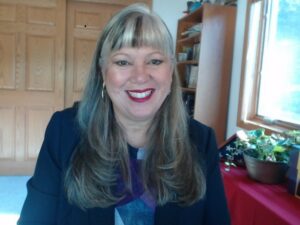
Julia Yeary
- Pronouns: she/her/hers
- Bio: Julia Yeary, LCSW, IMH-E® has been an advocate for children and their families since graduating from the University of Hawaii in 1980 with her master’s in social work. Julia works to establish stronger support for families and their very young children experiencing stress and trauma. Julia has authored several articles including Difficult Goodbyes: Supporting Toddlers Coping with Separation Anxiety (Young Children, July 2020), The Calm in the Storm: Supporting Young Children Before, During and After a Community Disaster or Trauma, (Young Child, November 2018), and the e-book Creating Activities for Strengthening Parent-Child Connections (ZERO TO THREE, 2011). Julia is rostered in Child Parent Psychotherapy and is credentialed with the Infant Mental Health (IMH) Endorsement® for Culturally Sensitive, Relationship-Focused Practice Promoting Infant Mental Health as a mentor in both policy and clinical.
11:45 am - 1:00 pm Lunch
Day Three Lunch at University Dining Hall
Visit Dining & Retail on Campus for more information on the Mary Graydon Center's Terrace Dining Hall, where meals are comped for all registered guests.
1:15 pm - 2:45 pm Session Five
Roundtable: The importance of collaboration during the pandemic for people experiencing homelessness
Nicole LiBaire, Winona Connor, Casey Guidry, & Martha KegelConstitution Hall Room 1
Abstract: Unlike most natural disasters the pandemic is a disaster that directly impacted everyone including those responding to protect and provide services to those most vulnerable. At a time when everyone was told the safest action was to stay at home the Louisiana Housing Corporation led the way to provide that very option to those that didn’t have a home and were living outside across Louisiana. Note that an estimated 30-50% of those experiencing homelessness in Louisiana are people with serious mental illness (SMI). This work was in partnership with federal, state and local government along with non-profit providers of homeless services. Specifically FEMA, the Governor’s Office of Homeland Security and Emergency Preparedness, the City of New Orleans, all the homeless Continuums of Care (CoC) in Louisiana, local rapid rehousing providers, CSRS and TAC. The high level of collaboration of all the partners led to a highly successful effort that protected over 2,000 people experiencing unsheltered homelessness from COVID through the use of Non-Congregate Shelter (NCS) and ultimately exited people to permanent housing ensuring they would remain protected. In a panel discussion hear from those involved in this work how important it was to collaborate especially as it relates to navigating FEMA public assistance including reimbursements for CoCs and serving the needs of people experiencing homelessness. Through the use of NCS homeless service providers engaged with people that were never able to engage with before or with those that would not access congregate shelter sites due to past experience/trauma and the threat of exposure to COVID. In addition to providing a hotel room where people could follow COVID CDC guidelines like social distancing and proper handwashing, people received meals, laundry services, identification, and enrollment in mainstream benefits including access to services like behavioral health while they looked for permanent housing. This cross sector collaboration reemphasizes that housing is health care.
Host
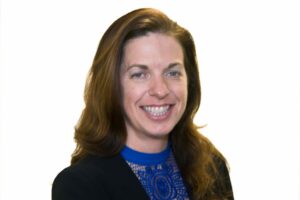
Nicole LiBaire
- Title: Senior Associate, Technical Assistance Collaborative
- Bio: Nicole LiBaire has more than two decades of experience in affordable housing and federal programs, and is a nationally recognized expert on disaster preparedness, response, and recovery efforts that address the needs of low-income people. Her recent experience includes disaster recovery work in Florida, Louisiana, North Carolina, and California. As Executive Director of the Louisiana Housing Authority, Ms. LiBaire oversaw the state’s 3,000-unit permanent supportive housing (PSH) and homeless programs, developed Louisiana’s plan to end homelessness, and chaired the Governor’s Council on Homelessness. She was instrumental in the state's nationally recognized hurricane relief efforts, and administered several federal programs that aided in rebuilding.Ms. LiBaire has experiencing with process improvement related to the Housing Choice Voucher program and is currently providing Emergency Housing Voucher technical assistance to public housing authorities across the country. While administering disaster recovery programs in Louisiana she played a large role in the creation and set up of the Louisiana Housing Authority. This work included the coordination of state agencies, local Continuums of Care (CoCs), and advocates. Ms. LiBaire successfully created Louisiana’s Balance of State CoCs in order to renew a large PSH grant that ultimately led to three mergers of local CoCs into the Balance of State.
- Website: Technical Assistance Collaborative
- Twitter: @TACIncBoston
- Facebook: TACIncBoston
Panelists
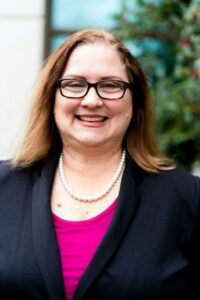
Winona Connor
- Title: Housing and Homeless Solutions Deputy Administrator, Louisiana Housing Corporation
- Bio: Winona M. Connor – Louisiana Housing Corporation-Deputy Administrator -Housing and Homeless Solutions Department. Ms. Connor leads a team that focuses on housing and homeless issues across the State of Louisiana. She works to effectively implement housing and supportive service programs and to secure funding to implement programs that will benefit the most vulnerable citizens of the state. She works to assist communities in maximizing federal, state and local funding and community resources to address local needs.She has over 25 years’ experience working in services, policy, planning, and research in the area of homelessness and special needs populations. She joined the State of Louisiana in 2007, prior to joining the state she worked with non-profit agencies providing services to the homeless, mentally ill and victims of domestic violence. Ms. Connor holds a Bachelor of Science Degree from Iowa University.
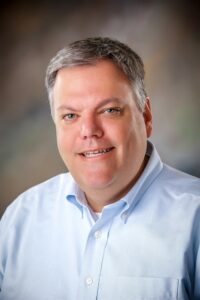
Casey Guidry
- Title: Executive Director of Start Corporation
Martha Kegel
- Title: Executive Director of UNITY of Greater New Orleans
*Presenting: Disaster Recovery After the Pandemic & Post-Traumatic Earth Disorder
Kathryn Ellard, Sallie Lynch, and Storm SwainConstitution Hall Room 2
Presentation One
Disaster Recovery After the Pandemic: Considerations for Supporting Resilience and Long-Term Healing in COVID-Bereaved Youth and Families
Abstract: A global pandemic such as COVID-19 should be considered a disaster that requires recovery and trauma-specific approaches. Like other disasters and traumatic events, the COVID-19 pandemic disrupted daily life for an extended period of time and harmed the world socially, economically and psychologically, but perhaps the most severe impact has been the staggering loss of life. Since the start of the pandemic, over 6 million lives have been lost worldwide and over 1 million in the U.S., including losses in 1 in 5 in Tuesday’s Children’s families. These are families who have already experienced previous trauma or loss due to terrorism, military conflict or mass violence. To date, 290,000 children in the U.S. have lost a parent or primary caregiver in the pandemic; many of those lost their sole caregiver. In this session we will draw on experience from long-term disaster response and recovery efforts and community resilience work to discuss challenges, effective outreach methods, and strategies to support youth and families impacted by the COVID-19 pandemic and in need of long-term healing.
Many families bereaved by COVID face additional barriers to care, mitigating risk factors, as well as psychosocial and socioeconomic challenges. Data has shown that the pandemic has had a disproportionate impact on younger children (13 and under) and communities of color. A disproportionate number of Black and Latinx households suffered COVID-related deaths. Many of these children live in multi-generational households. The loss of a grandparent, particularly one living in the household and caring for the child, can be as devastating as losing a parent. Youth and families in these household are likely to have pre-existing economic hardships and experiences of structural racism, which may make resilience in the wake of trauma more challenging.
Although the pandemic presents significant and unique challenges, there are several tested strategies and promising practices that can help address COVID bereavement for children and their families. Some proposed frameworks recommend focusing on resilience goals, promotion mindset, youth strengths and prosocial behaviors (McCarty et al., 2022), while others demonstrate that incorporating storytelling allows for identifying emotional states and promotes a sense of hope (Sullivan 2021).
Tuesday's Children's COVID Response Program is a three-year initiative to build the capacity of key stakeholders interfacing with children and families–including educators, healthcare professionals, community-based organizations and community leaders, policy makers and institutions–in order to improve bereavement care and promote long-term healing. The project also includes peer support and community and civic engagement opportunities for families impacted by Covid-19 losses. By strengthening the natural frameworks in which children and families cope with trauma and loss and building collaborative partnerships in bereavement care, we aim for these programs and resources to improve protective factors for children and contribute to their well-being.
Presenters
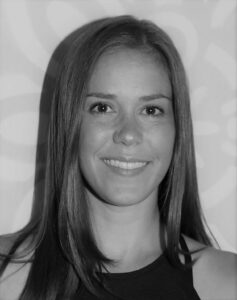
Kathryn Ellard
-
- Pronouns: she/her/hers
- Title: Program Manager
- Bio: Kathryn Ellard joined Tuesday’s Children as the COVID-19 Response Manager in January 2022. She brings over ten years of experience in the field of public health. In the past decade she has worked with hospitals, non-profits, and government agencies both domestic and abroad. She is passionate about keeping communities safe, healthy, and connected. Prior to joining Tuesday’s Children Kathryn was the Assistant Director for the country’s one and only ‘DOE Situation Room,’ a command center for NYC public schools COVID-19 return to school operations. She has also worked overseas in a special needs school in Rabat, Morocco and completed a community health needs assessments in Port-au-Prince and Thiotte, Haiti. She conducted program planning for the Ryan White Program in San Antonio, Texas and on the US/Mexico border. Kathryn also developed childhood health and wellness programs for immigrant families in Sunset Park, Brooklyn and created yoga therapy programs for women with cancer and chronic illnesses in Bay Ridge, Brooklyn. Kathryn earned her MS in Global Heath from George Mason University in Fairfax, Virginia and her BA in Speech Language Pathology/Audiology at Loyola College in Baltimore, MD.

Sallie Lynch
-
- Pronouns: she/her/hers
- Title: Senior Program and Development Consultant
- Bio: Sallie Lynch, MA, Senior Program and Development Consultant at Tuesday’s Children, has 20+ years of experience serving families of 9/11 victims, responders and survivors, post-9/11 military families of the fallen, global victims of terrorism and communities impacted by mass violence. She is the principal researcher and author of Tuesday’s Children’s evidence-based Long-Term Healing Model, a training curriculum and online toolkit for community resilience. Sallie has provided capacity-building support, training and customized guidance in the aftermath of terrorism, mass violence and wide-scale trauma and loss to frontline service providers, community leaders and survivors in the U.S. and 34 countries engaged in Tuesday's Children's peacebuilding initiative Project COMMON BOND. She has secured federal and institutional funding for expansive multiyear projects addressing trauma and loss in response to terrorism, targeted violence and the COVID-19 pandemic. In the aftermath of 9/11, Sallie was co-investigator of a longitudinal research and intervention program with Columbia University School of Social Work and the FDNY Counseling Service Unit for 9/11 widows and children who lost a firefighter parent. She is co-author of FDNY Crisis Counseling: Innovative Responses to 9/11 Firefighters, Families and Communities (Wiley, 2006) and publications in U.S. international journals on long-term healing and community resilience. She has served on advisory committees for Vibrant Emotional Health’s Crisis Emotional Care Team (CECT), Peace of Mind Afghanistan (PoMA) and the UN Centre for Counter-Terrorism. She has presented at the Ford Foundation Center for Social Justice, the United Nations, the Department of Homeland Security and to other distinguished audiences. She holds an MA in Cultural Anthropology from Columbia University and a BA in Cultural Studies from Charles University, Prague, Czech Republic. Sallie is certified in Grief Education and Psychological First Aid and is co-founder of Tuesday’s Children’s Survivors of Tragedy Outreach Program (STOP).
Presentation Two
PTED: Post Traumatic Earth Disorder and the formation of Earth Empathy: Lessons from COVID-19 for Mental Health perspectives on the Climate Crisis
Abstract: Mental health practitioners are increasingly seeing “eco-anxiety” (Pihkala 2018, APA 2017), “Climate grief” (Cunsolo and Ellis, 2016), and trauma in relation to ‘Climate’ (“Climate trauma,” Kaplan 2016; “Tierratrauma,” Albrecht 2019, “Geotrauma,” Craps 2020), show up in their practices, and as issues of collective public concern. However, the global and diverse nature of such a threat poses a complexity that is clinically challenging, and a reflexivity, which implicates the practitioner in relation to their own sense of threat regarding the state of the Climate. This situation is not dissimilar to COVID-19, a global disaster that impacted people in different ways, traumatized individuals, and groups, and threatened both patient and practitioner alike. This panel presentation offers a model for a practitioner to think about Climate from a Mental Health perspective, in a way that connects to both the ‘big picture’ and the individual case, seeing the planet as an Ecological Body that is facing trauma, and the human response as part of that interdependent picture, rather than separate from it. This calls us to have both a trauma- and resilience informed approach to climate anxiety and grief, through an empathy not only with the human and other-specied inhabitants of the Earth, but the Earth itself. This metaphor offers a powerful image of community and connection on an ecological level, that resources practitioners and disaster responders to cope with the increasing frequency and magnitude of extreme weather-related events, alongside the need to engage in mitigation and preparedness, and have a worldview that supports rather than negates or avoids climate realities.
The presentation offers "Post Traumatic Earth Disorder (PTED)” as a functional analogy for the current reality of the Climate Crisis. It will discuss the processes of the ecological body, akin to the human body. It will correlate PTSD symptoms, with PTED symptomatology, and engage participants in questions regarding mental health and spiritual resources and resilience.
Presenter
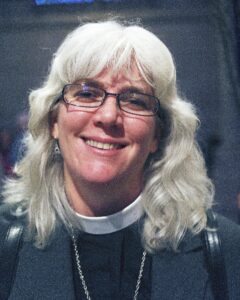
Dr. Storm Swain
- Pronouns: she/her/hers
- Title: The Frederick Houk Borsch Associate Professor of Anglican Studies, Pastoral Care, and Theology
- Bio: Dr. Swain is a seminary professor, pastoral psychotherapist, former Canon Pastor at the Cathedral of St. John the Divine in NYC, and a leader in the field of Disaster Spiritual Care. She has been an invited lecturer in Australia, Denmark, New Zealand, and the United States, being most known for her book Trauma and Transformation at Ground Zero: A Pastoral Theology (Fortress Press, 2011). In 2019, Swain was the keynote speaker for the Uniting (Church of Australia’s) conference, Pastoral Strength: Spirituality in Untrusting Waters, which was ‘anchored’ by Irish peacebuilder and poet, Padraig O’Tuama. Dr. Swain served as a chaplain in the American Red Cross’ 9/11 Disaster response in 2001, and on the Leadership team of New York Disaster Interfaith Services (NYDIS), until 2009. Dr. Swain was a moderator in the 2019 NYDIS Summit on Disaster Preparedness for Religious Leaders, and coauthored the Thrive NYC Mental Health Toolkit for Faith and Community Leaders, during the COVID-19 Pandemic. In this time of the COVID-19 Pandemic, she has been an invited speaker on virtual town halls and webinars on pandemic grief and trauma for the Chaplaincy Innovation Lab, Odyssey Network, Macedonian Ministry, the Institute for Collective Trauma and Growth, Priest Pulse, Thrive NYC, Interfaith Center of New York, and NYDIS, also producing a resource on ‘Embodied Coping in a time of COVID-19 Crisis.’ In 2022, Dr. Swain was the respondent to the ‘Psychology, Culture, and Religion’ section of the American Academy of Religion, on ‘Climate Catastrophe, Eco-Anxiety and Climate Grief: Psychological and Religious Perspectives.’ Her current sabbatical work is on the Climate Crisis, based in the scientific community of Woods Hole, MA.
Roundtable: Keys to Inter-Agency Collaboration & Culturally Competent Care: Lessons from CECT and USCRI Refugee Support
Andrew McLean, Marcie Beigel, Julia Yeary, Simran Grewal, & Tabassum SirajConstitution Hall Room 3
Abstract: When the United States government announced they would be pulling out of Afghanistan and accepting refugees and asylum seekers, multiple agencies and organizations came together in anticipation of the multiple, complex needs people would have. Issues like housing, supplies for infants and children, entry into the US education system, physical health needs, and setting up places around the country for these communities to live were tackled through an immense collaboration effort.
In an effort to address the mental health needs of our Afghan guests, the Department of Homeland Security and the United States Committee for Refugees and Immigrants came to Vibrant Emotional Health. The Crisis Emotional Care Team, a program within Vibrant which provides professional mental health volunteers, was ready to take up that effort and quickly got to work organizing volunteers to visit military bases and safe havens across the US.
The CECT sent volunteers a total of 84 times across nine states, providing almost 4,500 hours of service to Afghan refugees and immigrants. In that time, both the CECT, USCRI, ORR, and other government agencies learned a lot about collaboration between government and non-governmental organizations, setting volunteers up for success when encountering cultural differences and boundaries, and the communication styles that help the people across these organizations work together at their best.
This panel will provide insight into lessons learned, developing best practices in the moment, and what volunteers in these situations need most from the agencies to do their best work.
Host

Amy Carol Dominguez
- Pronouns: she/her/hers
- Title: Program Director, Crisis Emotional Care Team
Panelists
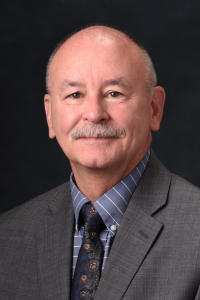
Dr. Andrew McLean
- Pronouns: he/him/his
- Title: Department Chair of Psychiatry and Behavioral Science
- Bio: Dr. McLean is Chair of the Department of Psychiatry and Behavioral Science at UND School of Medicine and Health Sciences. He obtained his medical degree from the University of North Dakota School of Medicine, completed a psychiatry residency at the University of Wisconsin and an M.P.H. degree from the University of Minnesota. He has been recognized as a UND School of Medicine Distinguished Alumnus, has received the American Psychiatric Association Bruno Lima award for outstanding contributions to Disaster Psychiatry, and has been conferred with numerous teaching excellence awards. Dr. McLean previously was the Medical Director of the ND Department of Human Services. He has served on numerous clinical, administrative and regulatory boards including medical licensing and professional health programs. He has lectured internationally on pertinent behavioral and public health issues. Dr. McLean has a particular interest in collaborative models of care. He also is interested in individual and community resilience.

Dr. Marcie Beigel
- Pronouns: she/her/hers
- Title: Family Culture Expert
- Bio: For more than 20 years, Dr. Marcie has been creating culture change with families, schools, and organizations; sharing her tools and strategies with thousands. She helps families shift from breakdown and disconnection to happy dances and memorable moments. She helps organizations build the bridge between mental health and business. Dr. Marcie believes the best way to create change is through inspiration and experience. This means her work, with both organizations and families is experiential, engaging, and practical because change only matters if it lasts. Dr. Marcie earned her doctorate from Teachers College, Columbia University and is a Board Certified Behavior Analyst-Doctorate Level. She is the best selling author of Love Your Family Again and Love Your Classroom Again. She is based in New York City, though loves to travel to her clients around the world. She has been a guest behavioral expert on national media, including FOX, ABC, and NBC. Sharing her passion for behavior has led her to speak at organizations ranging from individual school districts to the Royal Australian Navy to TEDxNaperville. For more information about her programs and training visit DrMarcie.com.

Julia Yeary
- Pronouns: she/her/hers
- Bio: Julia Yeary, LCSW, IMH-E® has been an advocate for children and their families since graduating from the University of Hawaii in 1980 with her master’s in social work. Julia works to establish stronger support for families and their very young children experiencing stress and trauma. Julia has authored several articles including Difficult Goodbyes: Supporting Toddlers Coping with Separation Anxiety (Young Children, July 2020), The Calm in the Storm: Supporting Young Children Before, During and After a Community Disaster or Trauma, (Young Child, November 2018), and the e-book Creating Activities for Strengthening Parent-Child Connections (ZERO TO THREE, 2011). Julia is rostered in Child Parent Psychotherapy and is credentialed with the Infant Mental Health (IMH) Endorsement® for Culturally Sensitive, Relationship-Focused Practice Promoting Infant Mental Health as a mentor in both policy and clinical.

Dr. Gursimran Grewal
- Pronouns: she/her/hers
- Title: Director of Refugee Health Services
- Bio: Dr. Gursimran Grewal is a trained Medical Doctor with a wealth of experience in global public health, specializing in Sexual and Reproductive Health, Family Planning, Maternal and Child Health, and HIV/AIDS. Over the past decade, she has provided technical leadership, project management, and financial oversight for large-scale programs across Asia and Africa, in partnership with international NGOs, private sector organizations, and governmental bodies. Her programs have been funded by a range of major donors, including BMGF, USAID, CDC, and others.Dr. Grewal's expertise in building partnerships and identifying new opportunities has been critical to the success of her work, and her dedication to delivering sustainable program interventions has improved the health and well-being of communities around the world. Currently, Dr. Grewal serves as the director of USCRI's Refugee Health Services, where she focuses on promoting the health and well-being of refugees resettled in the United States. She oversees the development and implementation of culturally sensitive and linguistically appropriate health assessments, education, and referrals, working collaboratively with community partners to ensure high-quality care and support for refugees.Her leadership skills and deep knowledge of refugee health and wellness have been instrumental in the program's success. Dr. Grewal's commitment to promoting equity and social justice is reflected in her work, which is recognized for delivering innovative and sustainable public health solutions. She is a compassionate and effective leader, with a proven track record of improving the health and well-being of vulnerable populations. Her expertise, leadership, and dedication make her an invaluable asset to any organization committed to global public health.
- Website: https://refugees.org/
- USCRI Twitter
- USCRI Instagram
- USCRI Facebook
- USCRI LinkedIn
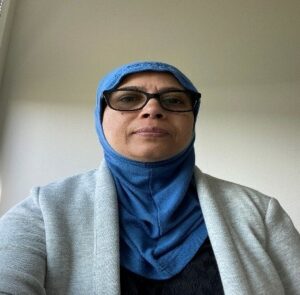
Tabassum Siraj
- Pronouns: she/her/hers
- Title: Mental Health Team Lead, Division of Refugee Health
- Bio: Tabassum Siraj is the Mental Health Team Lead in the Division of Refugee Health (DRH). She joined ORR in 2010. Her areas of expertise include program management, trauma awareness and resilience strategies, gender-based violence, diaspora community leadership, and the empowerment of women and youth. She was the ORR lead for mental health services to Afghans throughout Operation Allies Welcome. Tabassum holds a dual master’s degree from Georgetown University’s School of Public Policy and the Edmund Walsh School of Foreign Service, and a certificate in refugee and humanitarian emergencies.
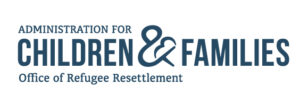
3:00 pm - 4:30 pm Closing Plenary
*Closing Plenary: The Power of Community and Connection in Disaster Behavioral Health
Amy Carol Dominguez and April NaturaleConstitution Hall Rooms 1-3
Abstract: After two full days of learning, meaningful conversations and opportunities to engage and innovate together, our closing plenary will anchor all of this in our symposium's theme. Reflecting on the shared perspectives of our presenters and the approaches to behavioral health in the field, Vibrant's AVP of National Crisis and Wellness Services, Dr. April Naturale and Crisis Emotional Care Team Program Director, Amy Carol Dominguez will guide the audience through an interactive question and answer session aimed at empowering us all to be even more effective in our everyday work.
Panelists

Amy Carol Dominguez
- Pronouns: she/her/hers
- Title: Program Director, Crisis Emotional Care Team
- Bio: Amy Carol Dominguez serves as the Program Director for the Crisis Emotional Care Team at Vibrant. She has been working in Disaster Mental Health since 2007. Amy’s international development career has taken her around the world to countries like Ethiopia, Liberia, Colombia, Argentina, Canada, and Mexico and she has coordinated international disaster mental health responses in Haiti, Nepal, Puerto Rico, and across the United States. She is a writer and speaker, focusing on best practices in volunteer engagement and leadership. Amy is actively involved in strategic program development for youth in Latin American countries and leads the Board of Directors for the Hands Offering Hope Foundation. She holds her Masters in Public Affairs from Indiana University and splits her time between Mexico and Connecticut with her husband, Adiel, and daughters Sofia and Lucia.

April Naturale
- Pronouns: she/her/hers
- Title: Assistant Vice President of National Programs
- Bio: Dr. Naturale is a traumatic stress specialist focused on response to disasters and mass violence. She has provided disaster and traumatic stress response training and consultation throughout the U.S. having led the NY mental health response to 9/11/01, the Boston Marathon bombing and responding to 12 of the last mass violence shooting events. Dr. Naturale also helped launch the National Suicide Prevention Lifeline and the Disaster Distress Helpline. Internationally, she has trained Psychologists in the Ukraine Military Service, Humanitarian Aid workers for the European Union and helped launch the European Centre of Expertise for Victims of Terrorism. Currently, Dr. Naturale is Vibrant Emotional Health’s AVP for Crisis and Wellness at the 988 Suicide and Crisis Lifeline and was also recently appointed by the U.S. Attorney General’s team of subject matter experts to review the law enforcement response to the May 24, 2022, Uvalde, TX, Robb Elementary school shooting.
4:30 pm - 5:30 pm Closing Reception
Closing Reception
Join us in Constitution Hall's Reception Area for cocktails and hors d'oeuvres.


